

How to Write a Nursing Reflective Essay (Guide for Nurse Students)

If you are a nursing or medicine student, you are aware that you will come across or have already come across assignments requiring you to write a nursing reflection essay. At first, such a task always appears challenging, but given the understanding of the steps, things flat out, and you can write reflective essays and get better grades.
Reflective practice is highly encouraged in nursing. Reflection entails making sense of situations, events, actions, and phenomena in the workplace.
As a nursing student, you will be asked to write a reflective essay on your clinical placement, practicum, shadowing experience, shadow health DCE activities, personal nursing philosophy, why you want to become a nurse, nursing program, ethical dilemma, knowledge, skills, and abilities, systems, and processes.
The easiest way to complete the reflective essay assignment is by first determining what reflective writing entails, its significance, its steps, and some of the best tips that form the core of this ultimate guide.
Basics of Reflective Writing in Nursing
Reflective writing is an analytical writing practice where the writer describes a real or imaginary event, scene, phenomenon, occurrence, or memory, including their takeaway. It entails the critical analysis of an experience, including recording how it has impacted you and what you intend to do with the new knowledge or how to act when such an occurrence recurs.
As you document the encounter, you can use first-person pronouns and write subjectively and objectively. This means that you can decide to either use personal experiences alone or support these experiences using citations from scholarly sources.
When writing a reflective essay in nursing, you must recount the events and give critical detail of how the events shaped your knowledge acquisition. Reflection helps nursing students develop skills in self-directed learning, which is directly associated with high motivation and improved quality of care .
In most cases, reflection occurs on what went well and what went wrong. It could be a successful operation, a thank you note from a patient, a patient who regained their health faster, or a new nursing care plan that worked. However, it can also be about adverse events such as death, postoperative complications, death of an infant at birth, dissatisfied patient, medical error, or a failed procedure.
As a nursing student, when you learn to reflect on situations, you grow to become a professional nurse who diligently does their noble duty.
When writing a reflective essay, you begin by setting the scene (explaining what, where, how, and who-the situation), detailing how you felt (emotional state), why it happened (making sense of the situation), critical review and development of insights, a note on what was learned, and strategies to address future recurrence.
Your professor may ask you to write a nursing reflective paper about various topics in your course or your experience working in a group, how you solved a problem, a healthcare issue, or clinical practice. Consider the following example of a reflective statement in nursing; in my clinical practices, I realized I focused more on the technical aspects but failed to explain what it was doing to improve their health. I would like to understand more about listening to patience and their concerns to better care for them.
As you will notice later, these reflective stages are structured into different reflective models and frameworks that we will explore in-depth. So, with the understanding of what comprises reflective writing and its importance in nursing, let's now get solid on the structure.
Related Reading:
- Philosophy of Nursing Example.
- Ideas and topics for nursing capstone or project papers
- How to write a SOAP note paper
- Top nursing debate topics
- Nursing Theories and Theorists.
Structure of a Reflective Essay in Nursing
A reflective essay is an analytical writing piece describing and evaluating encounters or experiences. When asked to write one, you should know that an excellent reflective essay consists of different parts, just like a typical academic essay. It comprises the cover or title page, introduction, body paragraphs, conclusions, and a references page.
The title page contains information about the assignment. If you are writing the reflective essay in APA, include these on the title page:
- Title of the reflective essay
- Course code and name
- Instructors name
- Name of your institution
- Date of submission
When writing in Harvard format, the title or the cover page will consist of the following:
- Title of the essay in title case and the page number (upper right margin),
- Title of the essay in CAPS,
- Name of class or course,
- Name of the instructor,
- Name of your school,
- City and state where your school is located and,
- The date of submission.
Introduction
The introduction begins with an attention grabber or a hook sentence to attract readers' attention. It should then explain the essay's purpose and signpost the ideas that will come later in the essay. The introduction also has a thesis statement at the end of the paragraph- the last sentence. The thesis is concise, clear, and relatable and should reflect your position.
Body Paragraphs
The body paragraphs of a reflective essay can be three or more, depending on the length of the essay. Essentially, the body comprises 80% of the total word count.
The first paragraph is where you describe the situation, including the events, why they occurred, how they occurred, and those involved.
The second paragraph entails your personal feelings or reaction to the situation and how it made you feel.
The third paragraph can include making sense of the situation. You have to think about why things happened the way they did. You should also critically review and develop insights based on the situation. Finally, think of the factors that could have influenced the situation.
The next paragraph should explain how the event or situation will change your practice, approach, decisions, perspective, or perception. This is where you evaluate the experience by detailing the knowledge and skills you took from the experience.
The last body paragraph should entail a critical reflection on the learning opportunities. First, describe the situation and what it made you learn. Next, elaborate on how you intend to make yourself better poised to address such situations.
Mostly, you should structure the body of your essay as per the preferred nursing reflective model.
After everything else falls into place, you need to summarize the information you presented in the essay. Then, finally, restate your thesis and have a call to action to bring a sense of closure to your readers.
Steps for Writing a Nursing Reflection Essay � The Guide
When assigned to write a reflective essay for your nursing class, here are the surefire steps to get you to success.
Read the instructions
The first step after receiving an assignment is to begin reading the instructions. as you read, note what your instructor or professor expects in the paper you will submit for marking.
Reading instructions helps you to get informed on the scope of the paper, word count, number of references and pages, and the formatting style to use.
Besides, you also get to plan your paper with the deadline highlighted in the instructions.
You need to get a conducive environment where you can start writing.
The first step of writing is to brainstorm about situations during your clinical hours when you were shadowing a Nurse Practitioner or one you have read about.
Assess whether the situation or scenario you have thought, encountered, or chosen can help you write a reflective essay that meets the requirements.
Research and Plan
After choosing a scenario, the next step is researching the best reflective model.
You can use your class text, the instructions, the college library, course readings, and online nursing journals to get articles and resources with information about specific reflective models.
Select the best reflective model and take notes on the steps it entails.
As you research, write down notes on how to address your paper based on your selected framework or model of reflection . Additionally, research nursing journal articles with information you can use when critically analyzing a situation.
Plan how you will handle the paper as well. For instance, as you research, develop a thesis statement that grounds your entire paper, then draft an outline on how to develop the thesis.
Write an Outline
Outlining is a crucial aspect of writing. It helps you envision how you will meet the objective of writing a reflective essay. As an essential part of the essay writing process, outlining helps create a good flow of ideas and can come in handy in helping you overcome writer's block. Your outline should comprise the following:
- The hook or attention grabber
- Thesis statement
- Main points of each body paragraph (topic sentence, evidence, examples, illustrations, etc.)
- Conclusion (restated thesis and call-to-action)
With the outline done, you should take a break and resume writing your first draft of the nursing reflection essay. Writing with an outline helps avoid mistakes and also helps you write faster.
Describe the Experience
Once you have identified the relevant experience, begin describing it chronologically.
Describe the experience that prompted you to consider nursing your ideal career goal. Think of this experience's key elements, such as the setting, patient demographics, and significant events that impacted you.
Show how these events changed your perspective on life. Ensure you are as descriptive as possible to paint a clear picture for readers.
Consider the following questions to come up with a good description:
- What happened?
- Was there someone involved? If yes, what part did they play?
- Where did the event take place?
- What actions did you take?
Set the context of this experience by giving relevant background information. Ensure you are objective and pay attention to the facts.
Provide a Reflection
Talk about your feelings and thoughts concerning the particular experience you went through. You have to be honest and open up about your initial expectations and challenges you faced at each stage of the experience. The following questions can help you come up with a good reflection:
- What was I trying to achieve?
- What prompted me to act the way I did?
- Are there any consequences for my actions? If yes, what are they?
- How did I feel about this event as it was happening?
- How did those around me react to it?
- How do I know how those around me felt about it?
Analyze the Experience
Description of an experience is essential, but so is analysis. You have to move beyond the surface and give a critical analysis of your experience.
State your actions, and your overall experience will give insights into your experience. Think of how the experience has impacted your actions, feelings, and thoughts.
Give an Evaluation
Evaluate the skills and knowledge you got from the experience. Show how you can apply these skills and knowledge in your nursing practice. Also, state the actions and interventions you took during the nursing experience.
State whether you achieved the desired outcome and if there are any specific areas that you need to improve on.
Talk about how you built or improved skills like communication, teamwork, and critical thinking.
As you evaluate the experience, identify what you believe to be your strengths and weaknesses in the nursing experience. What have you learned from the experience? State the areas where you excelled and what abilities contributed to your success.
Talk about how those you were with during the clinical experience complimented you. Similarly, acknowledge your weaknesses.
What kind of mistakes did you make, and how did you improve them? Talk about the tasks that drain you most during the experience.
Illustrate Learning
Demonstrate elements of deeper thought and reflection levels. This is a great point to include nursing theories in your reflection essay to support analysis of your experience.
Relate your experiences to the theoretical frameworks you were taught in class. This is effective learning and will demonstrate your ability to apply knowledge to real-life nursing situations.
Doing this will also show that you can effectively deduce different things from observations made during the reflection process.
Ensure you also demonstrate a change in perspective, as this will prove that you learned something from the experience.
Write Your Conclusion
Conclude by summarizing your points and highlighting the lessons learned.
The lessons you reached as part of your reflection should support your overall conclusion.
Also, restate your thesis statement.
Come Up with an Action Plan
Now that you have learned from your reflection develop an action plan for future nursing practice.
This part should contain all the details you have learned and actions needed to improve when faced with a similar situation. Consider the following questions:
- What would I change if faced with a similar situation?
- How can I develop the necessary skills needed to face this situation?
- How can I act differently in a similar situation?
Ensure you identify areas to improve and set realistic goals to enhance your nursing skills. Discuss how you intend to seek additional education, training, or mentorship to address your shortcomings.
Finally, end the essay with a happy note so readers know you learned something from the experiences.
Proofread, Edit, and Polish
After doing your first draft, take a break to relax and get out of the writing mood - it helps you to become objective.
You can then resume reading out loud to yourself, make necessary tweaks, and ensure that every part you include meets the rubric requirements.
Edit for grammar, punctuation, tenses, voice, spelling, and use of language. You should also proofread the essay to adhere to the style, organization, and presentation requirements.
Ensure that all the in-text citations are accounted for in the reference list and are up-to-date. You are good to go when you have an essay that meets all the instructions.
Finally, you can submit the paper for grading.
Writing is not everyone's cup of tea. For that reason, you can hire a nursing reflection essay writer from our website to assist you in crafting a top-grade paper. In addition, we have nursing writers whose forte is writing various nursing papers.
Choosing the suitable Reflective Model or Framework
As you can see above, many reflective models are used for your reflective essay. We have not exhaustively listed and expounded on all of them. Other reflective models and frameworks you can also consider when writing a reflective essay in nursing include:
- Bouds Reflective Model
- Brookfield Reflective Model
- Pender's Health Promotion Model
- Roper Logan and Tierney Model
- Driscoll Reflective Model
- The Johari window model
Note that most nursing instructors will often suggest the models they prefer for you to use in your essay.
For example, in most nursing reflective essays. Whichever the case, readily available information expands on each model to make it easier to write a reflection essay on a specific aspect of nursing education or practice.
Read the assignment rubric and instructions to understand the specific model. If it is unclear, ask for clarification from your instructor early enough.
Tips for Writing a Good Nursing Reflective Essay
As you try to figure out how to write a nursing reflective essay, keep the following tips in mind.
Choose the Right Topic
If the instructions from your professors involve choosing a topic for the reflective essay, you must select one that is meaningful to you.
This will ensure you can easily write and easily develop relevant elements about the topic. Therefore, take time to pick a topic that you find interesting.
As you write, ensure you stay on topic, whether sharing a one-off event or a recurrent story.
Use the Right Tone
A reflective essay is more personal, unlike other types of academic essays. This means you don't need a strict or formal tone.
Since this is about your experiences, use personal pronouns such as I and Me.
Be Vulnerable
You must be extremely vulnerable to learn how to write a reflective essay in nursing.
Be open about your thoughts, feelings, and beliefs about something you went through that sparked an interest in nursing.
It's okay to share mistakes or things you did wrong that eventually led you to this career path.
Choose the Right Focus
A reflection essay is all about narrating your experience during the nursing experience.
While including other people in your experience is okay, please let them not be the center of your reflection.
This is your essay, so you should be the focus of attention.
Keep it Brief
A good nursing reflection essay should be between 300 and 800 consciously written words. Because of this length, you must only write relevant information about your reflection. Refrain from lengthy reflections, as they make it difficult to pass your points across.
Convey Your Information Wisely
Even though a nursing reflection essay is about your personal experiences, it doesn't mean you should reveal everything about yourself. Ask yourself whether something is appropriate before including it in your paper.
Mistakes to Avoid When Writing a Reflection Essay in Nursing
A good reflection essay involves reflecting on your nursing studies and practices throughout school and career to demonstrate your competence. For this reason, there are certain mistakes you should be aware of when writing an essay.
Not including a Personal Story
Like food tastes bland without salt, so does a reflection essay without a personal story. At the center of a reflection essay is You. This means the essay should focus on your personal story that led you to want a nursing career. A lot of times, students miss out on this instead of talking about their story. You need more than just the personal qualities you think will be a great fit for the nursing program; you must also share a story that shows how well you contributed to nursing care.
Failing to Share Your Experience
You will lose points when you fail to include nursing-related experiences in your reflection essay. Mentioning that you want to be a nurse is great, but failing to show specific events that led to the desire will cost you a great point.
Plagiarizing Your Essay
Plagiarism is a serious academic offense because it is considered taking other people's ideas and using them as your own without crediting the author. So, provide relevant citations and references for any ideas that aren't your own. Also, an AI will not write your essay as a human writer would.
Related Readings:
- How to write a student nurse resume with no experience.
- PICOT examples and guides
Sample of a Nursing Reflective Essay
The following is a sample of a nursing Reflective essay using Gibb's Model of Reflection. Use this sample to guide you when writing your own.
Introduction Communication is an important element in healthcare practice as it determines patient satisfaction and treatment outcomes. This essay will focus on reflecting on an experience I went through with a 40-year-old diabetic patient who also had a foot infected with an ulcer. When I approached the patient to sign the consent form, I noticed that he wasn't happy because of the news given to him about his health. I concluded that there must be a communication dilemma. I will reflect on the experience using Gibb's Model of Reflection. Using this model, I will identify and discuss the actions taken to resolve the issue. Description This incident happened a few months ago when I was working as a wound nurse in a Methodist hospital in my hometown. I was part of a care team handling the case of a 40-year-old male patient with diabetes and an infected diabetic foot ulcer. After careful examination, a team comprising various specialists concluded that his leg needed amputation below the knee. After making this decision, the team left, and I was asked to give the patient a consent form to sign. When I came back from retrieving the form, I noticed the patient looked sorrowful because of the news given to him. Feelings As soon as I saw the patient, I knew what he was going through. He perceived the situation to be irreparable, but I wasn't sure whether to console the patient or not. I was powerless and couldn't imagine what he was going through. At the same time, I was startled that the team left without showing any compassion. They could have handled the situation more delicately. I, on the other hand, could have relayed the information better. I wasn't sure whether my approach would be acceptable or appropriate. Evaluation I always go back to that particular situation and wonder whether I could have acted better. The situation helped me better understand the importance of good communication in patient care, particularly in therapeutic care. Before the incident, I didn't acknowledge the role of nurses play in caring for patient's emotional needs. I realized nurses must show compassion and console patients in their low moments. Analysis Most healthcare professionals do not know how to deliver bad news to patients. They find the process extremely challenging and always feel psychologically unprepared. This has a negative impact on patients and could lead to bad health outcomes. Furthermore, how information is relayed could impact a patient's adherence to treatment. Because of these effects, multiple protocols and approaches were developed to help with communicating bad news to patients. One of the approaches that was proposed is emotion-centered. This proposes that a healthcare provider acknowledges how sad the patient is and builds a professional relationship based on empathy and sympathy. Action Plan I now understand the essence of communicating bad news with compassion. The experience allowed me to look closely at different aspects of my professional development that needed more improvement. Thus, I plan to be more empathetic and speak up in support of patient's emotional and psychological well-being, especially when presented with traumatic news about their health. Additionally, I now understand I am not powerless when dealing with a sorrowful patient. I believe I have learned from my experience, and I'm not able to communicate well with patients any more. Conclusion The experience allowed me to value good communication in nursing and the need to incorporate it into daily nurse-patient interaction. Nurses must learn how to deliver bad news and manage patient's sorrow. This has been and will continue to be my biggest priority in patient care. References Street Jr, R. L., Makoul, G., Arora, N. K., & Epstein, R. M. (2009). How does communication heal? Pathways linking clinician–patient communication to health outcomes. Patient education and counselling, 74(3), 295-301. Buckman, R. (1992). Breaking bad news: why is it still so difficult? BMJ: British Medical Journal, 304(6842), 886. Ptacek, J. T., & Eberhardt, T. L. (1996). Breaking bad news: a review of the literature. The Journal of the American Medical Association, 276(6), 496-502.
Writing is not everyone's cup of tea. For that reason, you can hire a nursing reflection essay writer from NurseMyGrade to assist you in crafting a top-grade paper. In addition, we have nursing writers whose forte is writing various nursing papers. Just place an order , and we will get back to you ASAP.
Struggling with
Related Articles

Tips to help you Succeed in Nursing School

List of Borrowed Non-Nursing Theories Used in Healthcare
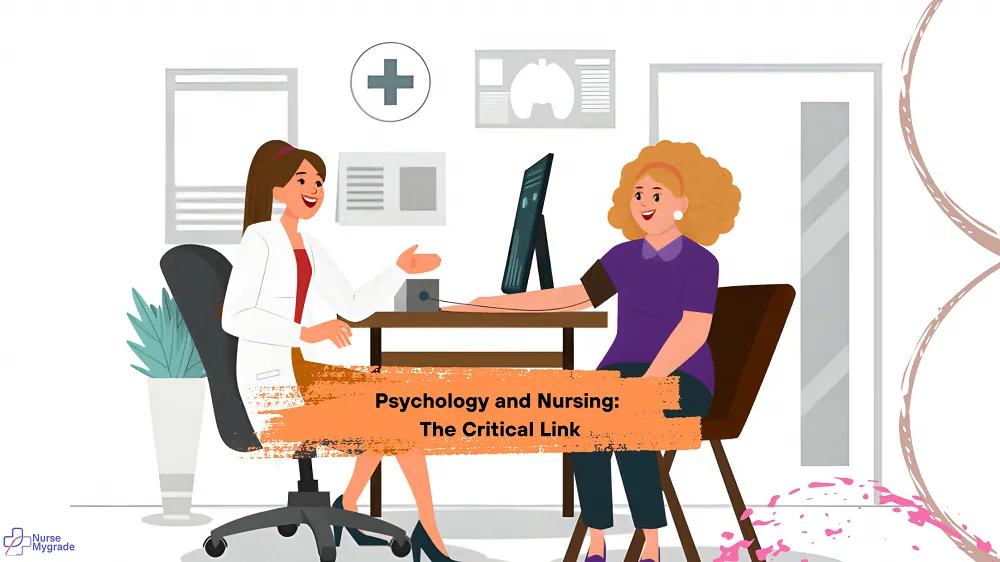
The Importance of Psychology in Nursing
NurseMyGrades is being relied upon by thousands of students worldwide to ace their nursing studies. We offer high quality sample papers that help students in their revision as well as helping them remain abreast of what is expected of them.

Writing a Nursing Reflective Essay: Unveiling the 4 Biggest Success Tips for Nurses
Reflective practice is a cornerstone of the nursing profession, empowering nurses to enhance their skills, knowledge, and personal development. Nursing reflective essays serve as a powerful tool for nurses to explore their experiences, emotions, and thoughts surrounding specific incidents or situations encountered in their practice. In this blog post, we will delve into the significance of reflective essays in nursing, understand the reflective process, highlight the benefits of self-reflection for professional growth, and provide valuable tips for writing an impactful nursing reflective essay.

1. Understanding Reflective Practice
Reflective practice is a deliberate process that involves critically examining one’s experiences, actions, and responses in various clinical scenarios. It is a cyclical journey that incorporates observation, analysis, and evaluation to gain insights into personal strengths and areas for improvement. Reflective essays provide nurses with a structured platform to document and assess these experiences, enabling them to identify patterns, evaluate their performance, and enhance their practice.
By engaging in reflective practice, nurses are encouraged to think deeply about their actions, decisions, and the impact they have on patient care. It allows them to question their assumptions, biases, and preconceptions, leading to a more comprehensive understanding of the complexities of healthcare delivery. Reflective practice promotes an ongoing process of learning and growth, ensuring that nurses continually strive for excellence in their profession.
2. The Reflective Process
A. description:.
In this initial stage of the reflective process, nurses provide a detailed account of the event or incident they wish to reflect upon. They describe the context, setting, and individuals involved, ensuring a clear understanding of the situation. This description sets the foundation for a thorough reflection.
b. Feelings and Thoughts:
Nurses delve into their emotional and cognitive responses to the event, expressing their initial feelings, thoughts, and reactions. They consider how their emotions may have influenced their actions and decision-making during the incident. This introspection allows nurses to recognize their own biases and explore alternative perspectives.
c. Evaluation:
This stage involves an objective evaluation of the event, considering the outcome, patient outcomes, and the nurse’s own performance. Nurses analyze their actions, identifying strengths and areas for improvement. They reflect on their communication skills, technical proficiency, and adherence to professional standards. This evaluation helps nurses acknowledge their achievements and recognize areas where further development is required.
d. Analysis:
Nurses engage in critical analysis of the event, seeking underlying factors, patterns, and relevant literature or guidelines. They explore the impact of personal beliefs, values, and ethical considerations on their decision-making. They may reference research, best practices, or theoretical frameworks to gain a broader understanding of the situation and identify potential areas for improvement.
e. Conclusion:
In this final stage, nurses summarize their learnings from the reflective process. They outline the key insights gained, identify changes in their understanding or practice, and explore strategies for future improvement. This conclusion serves as a roadmap for personal and professional growth, providing a clear direction for further development and enhancement of nursing practice.
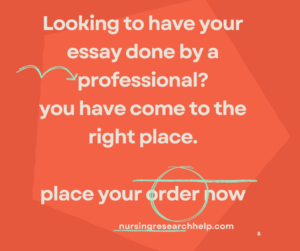
3. Benefits of Nursing Reflective Essays
A. enhancing critical thinking:.
Reflective essays foster critical thinking skills by encouraging nurses to question their actions, assumptions, and the evidence behind their decisions. This process promotes a deeper understanding of the complexities of patient care and encourages evidence-based practice. Nurses develop the ability to analyze situations from multiple perspectives and make informed decisions that prioritize patient safety and well-being.
b. Personal Development:
Nursing reflective essays promote self-awareness, emotional intelligence, and personal growth. Nurses gain a deeper understanding of their own values, beliefs, and biases, which allows them to provide more compassionate and patient-centered care. By reflecting on their experiences, nurses can identify their strengths and weaknesses, reflect on their interpersonal skills, and enhance their ability to empathize and connect with patients and their families.
c. Professional Growth:
Nursing reflective essays provide nurses with a platform to reflect on their professional development, identifying areas for improvement and formulating strategies for advancement. Through self-reflection, nurses can assess their competence in various aspects of nursing practice, such as clinical skills, leadership abilities, and communication. They can set goals for ongoing learning and development, ensuring they keep pace with evolving healthcare practices, technologies, and research.
d. Improved Patient Care:
By engaging in reflective practice, nurses can improve the quality of care provided to their patients. Nursjng reflective essays enable them to identify and rectify errors, enhance communication and teamwork, and ensure patient safety and satisfaction. Nurses gain valuable insights into their own performance, allowing them to make necessary adjustments to their practice to deliver optimal patient outcomes. Reflective practice encourages a proactive approach to addressing challenges and continuously improving the care provided.
4. Tips for Writing a Nursing Reflective Essay
A. select an appropriate incident:.
Choose an incident or situation that had a significant impact on your practice or personal growth. It should be relevant, recent, and conducive to deep reflection. Consider incidents that challenged your assumptions, presented ethical dilemmas, or highlighted areas for improvement.
b. Use a Structured Approach:
Follow a reflective framework, such as the Gibbs’ Reflective Cycle or the Johns Model of Reflection , to guide your nursing reflective essay. This structure will help ensure a comprehensive and organized reflection. Start by describing the incident, explore your feelings and thoughts, evaluate your actions, analyze the situation, and conclude with key learnings and action points.
c. Be Honest and Self-Critical:
Reflect on your actions and decisions with honesty and self-criticism. It is essential to acknowledge any mistakes or areas where you could have performed better. Nursing reflective essays are not meant to place blame but rather to promote growth and improvement. Recognize your strengths and weaknesses and explore strategies to build on them.
d. Connect Theory and Practice:
When researching your nursing reflective essay, explore relevant theories, guidelines, or evidence-based practices that relate to the incident. Consider how these resources could have influenced your actions or outcomes. Integrating theoretical knowledge with practical experience enhances your understanding and enables you to make informed decisions in future situations.
e. Focus on Learning and Growth:
Emphasize the lessons learned from the nursing reflective essay writing process. Identify specific actions or changes you will implement in your future practice to enhance your skills and improve patient care. Nursing reflective essays should demonstrate a commitment to ongoing learning and improvement. Share your plans for continuing professional development, such as attending relevant workshops, seeking mentorship, or engaging in further education.
Nursing reflective essays offer a valuable opportunity for self-reflection and professional growth. By engaging in the reflective process, nurses can gain insights into their actions, emotions, and thoughts, leading to improved critical thinking, personal development, and ultimately, enhanced patient care.
Embracing reflective practice allows nurses to continually evolve and adapt to the ever-changing healthcare landscape, ensuring the provision of high-quality, patient-centered nursing care. Through reflective essays, nurses can unlock their potential, foster empathy and compassion, and become lifelong learners committed to continuous improvement.

Nursing Assignment Help
At Nursing Research Help , we understand the challenges and demands that nursing students face in their academic journey. That’s why we are here to provide comprehensive assignment help services tailored specifically for nursing students. Our team of experienced and qualified professionals is equipped with in-depth knowledge of nursing principles, practices, and theories, ensuring that we deliver top-notch assistance for your assignments. Whether you need help with a nursing reflective essay, case studies, psychology assignments , research papers, or any other academic tasks, our experts are ready to provide you with the support you need.
We offer timely delivery, original and well-researched content, and a commitment to meeting your specific requirements. With our assignment help services, you can focus on honing your practical skills and gaining hands-on experience, knowing that your academic assignments are in capable hands. Trust us to help you achieve academic success and excel in your nursing studies. Contact us today to learn more about how we can assist you in your nursing assignments.
You might also like

Nursingresearchhelp.com is the fastest, easiest and most reliable way to have content written for your website. You’ll be able to post a project and 1000s of freelance writers from across the globe will have instant access to write your content quickly, professionally, and affordably.
QUICK LINKS
- HOW IT WORKS
- OUR SERVICES
- TERMS OF USE

Call/Text: +1 608 912 3884

Nursing Reflective Essay: Examples + Useful Writing Tips [2024]
![self reflection essay in nursing Nursing Reflective Essay: Examples + Useful Writing Tips [2024]](https://studycorgi.com/wp-content/uploads/2022/04/medical-assistant-reading-book-elder-disabled-woman-nursing-home-senior-patient-sitting-wheelchair-receiving-assistance-support-from-nurse-as-entertainment-fun-activity-485x528.jpg)
Do you need to write a reflective nursing essay? Whether you are a nursing student or already working, we know that you may be too busy writing papers. We’ve prepared information for you about reflection models and nursing reflective essay examples, writing instructions, and templates for the outline. This article will teach everything you need to make writing your essay easier.
So, how do you write an academic reflective essay?
What Is a Reflective Essay?
15 best reflective essay topics: nursing, nursing reflective essay examples, reflective tools and models, reflective essay writing tips, reflective essay body paragraphs, how to conclude a reflective essay.
In a reflective essay, you express your thoughts based on your knowledge, beliefs, reflections, and experiences. A reflective essay is best described as an exceptional and personal essay: you will have a lot to think about, comprehend, and explain. You have to demonstrate the feelings that you have experienced before. It should be honest. If you have any opposing thoughts and feelings about the topic, you should write them.
The peculiarity of a reflective essay, unlike an analytical one, is in the expression of thoughts based on personal experience.
How long does a reflective essay last? It’s simple. It depends on your topic and how you express your thoughts. But you have to remember that this is a highly brief type of essay, and you can do it with a few pages.
You can check out the 100% free essay samples to see it all.
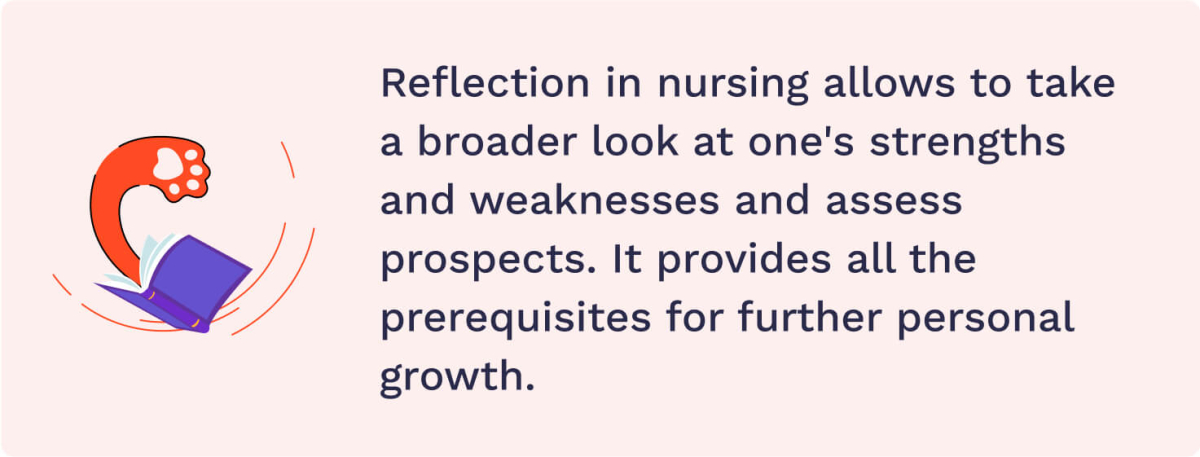
What Is a Reflection in Nursing Essay?
Nursing involves many aspects of work, and reflection is one of the critical tools for developing professional competence and personal skills. In nursing, reflection is important because it provides all the prerequisites for further personal growth. It is a reflection that will allow you to take a broader look at your strengths and weaknesses and assess your prospects.
Think of your nursing reflective essay as a chance to reflect on your career, skills, and personality, which will lead to further improvement.
- Empathy and support in nursing.
- Communication with patients is one of a nurse’s most important tasks.
- Nursing is the art of caring for the patient during illness.
- The key is not to cause harm but to help afterward.
- Time management in nursing.
- The Patient’s Interests Come First.
- Why did I become a nurse?
- Doctor- patient confidentiality in nursing.
- The importance of enhancing soft skills for the nurse.
- Nursing knowledge should not be limited to narrowly professional information.
- Reflective essay on the internship .
- Nursing culture and ethics .
- Deontology of nursing and its synthesis with my personal experience.
- Nursing clinical reflection essay.
- Nursing issues for the elderly.
To better understand what reflexivity is, let’s look at examples based on these articles:
Scientists from different fields of science invented many models to simplify the process of reflection. Below are reflection models you can use in your essay nursing writing practice.
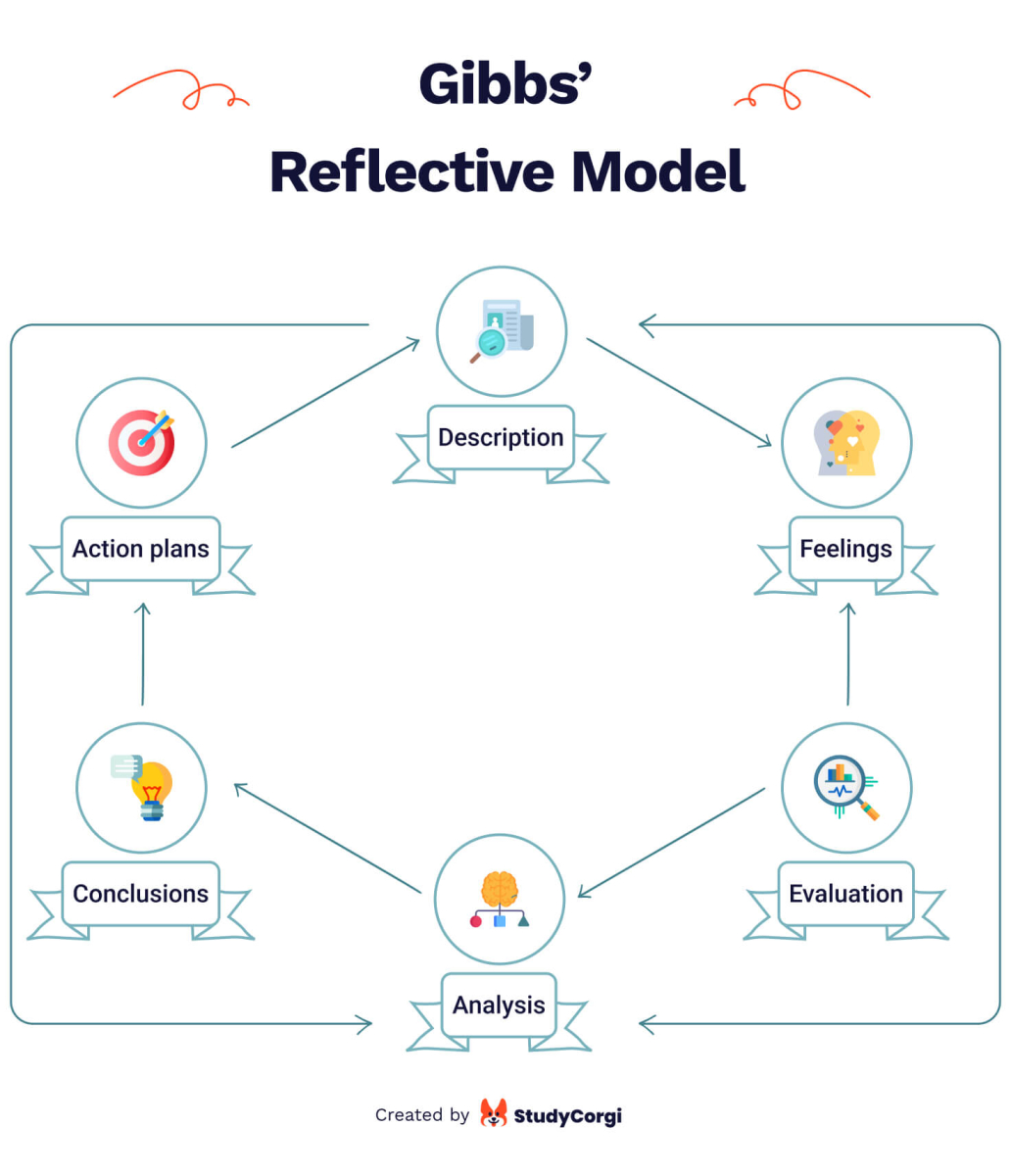
Gibbs’ Reflective Model
In 1998, Graham Gibbs introduced his reflexive model to the world. Gibbs’ model is a cycle and, therefore, excellent for analyzing repetitive experience.
It covers 6 stages:
- Description. What happened? Don’t judge or try to conclude yet; just describe.
- Feelings. What were your reactions and emotions? Again, don’t begin to analyze them yet.
- Evaluation. What was good or bad about the experience? Make value judgments.
- Analysis. Were different people’s experiences similar or different in importance?
- Conclusions. What conclusions can you draw in a general sense from this experience and your analysis? What conclusions can you draw about your particular, unique personal situation or way of working?
- Personal action plans. What steps are you going to take based on what you have learned? What are you going to do differently in this situation next time?
Dewey’s Reflective Thinking Model
John Dewey believed that reflective thinking is the active, persistent, and careful evaluation of a belief or assumed form of knowledge, the grounds for that knowledge, and the additional conclusions to which knowledge leads.
John Dewey’s Reflective Model was one of the first and has been the foundation for many other models. He identified five steps of reflective thinking:
- Step 1: Identify the problem.
- Step 2: Investigate the issue.
- Step 3: Generate several possible solutions.
- Step 4: Evaluate the options and select the best answer from the combination of solutions.
- Step 5: Test and implement the solution.
Kolb Reflective Model
The Kolb Reflective Model or “Kolb cycle” focuses on transforming information into knowledge. The basic four steps of the Kolb model are as follows:
- Concrete experience. Anyone should already have experience in the field or area they want to learn.
- Observation and reflection . This stage implies analyzing the person’s experience and knowledge .
- Forming abstract concepts . A model describing the information and expertise is built at this stage . Ideas are generated, interrelations are made, and new information is added concerning how everything works and is arranged.
- Testing in new situations . The last stage implies experimentation and testing the model’s applicability and concept . The result of this stage is a direct unique experience. Then the circle closes.
Schön Reflective Model
Donald Schön’s reflexive model was described in the book ‘ The Reflexive Practitioner .’ He explained how professionals solve problems with a kind of improvisation that is perfected through practice.
Schön’s reflective model , like his writings, is based in many ways on the Dewey we already know
- Action reflection involves reflecting on an experience you have already had or an action you have already taken. It involves considering what could have been done differently and the positive aspects of that interaction.
- Reflection in action involves reflecting on your efforts as you make them and considering issues such as best practices throughout the process.
Bouds Reflective Model
David Bouds paired with Schön to explore the limits of reflective practice. This model is based on learning by doing. By analyzing his own experience, the practitioner begins to understand better how to improve certain things.
Bouds suggests that by reflecting, a person may be unconsciously learning. In reassessing the events of his life, he systematizes and classifies emotions, ideas, and results, as well as results, and compares past goals with results.
Past experiences, experiences, and ideas require constant analysis attention to feelings. This leads to new perspectives, commitment to action overall positive changes in behavior.
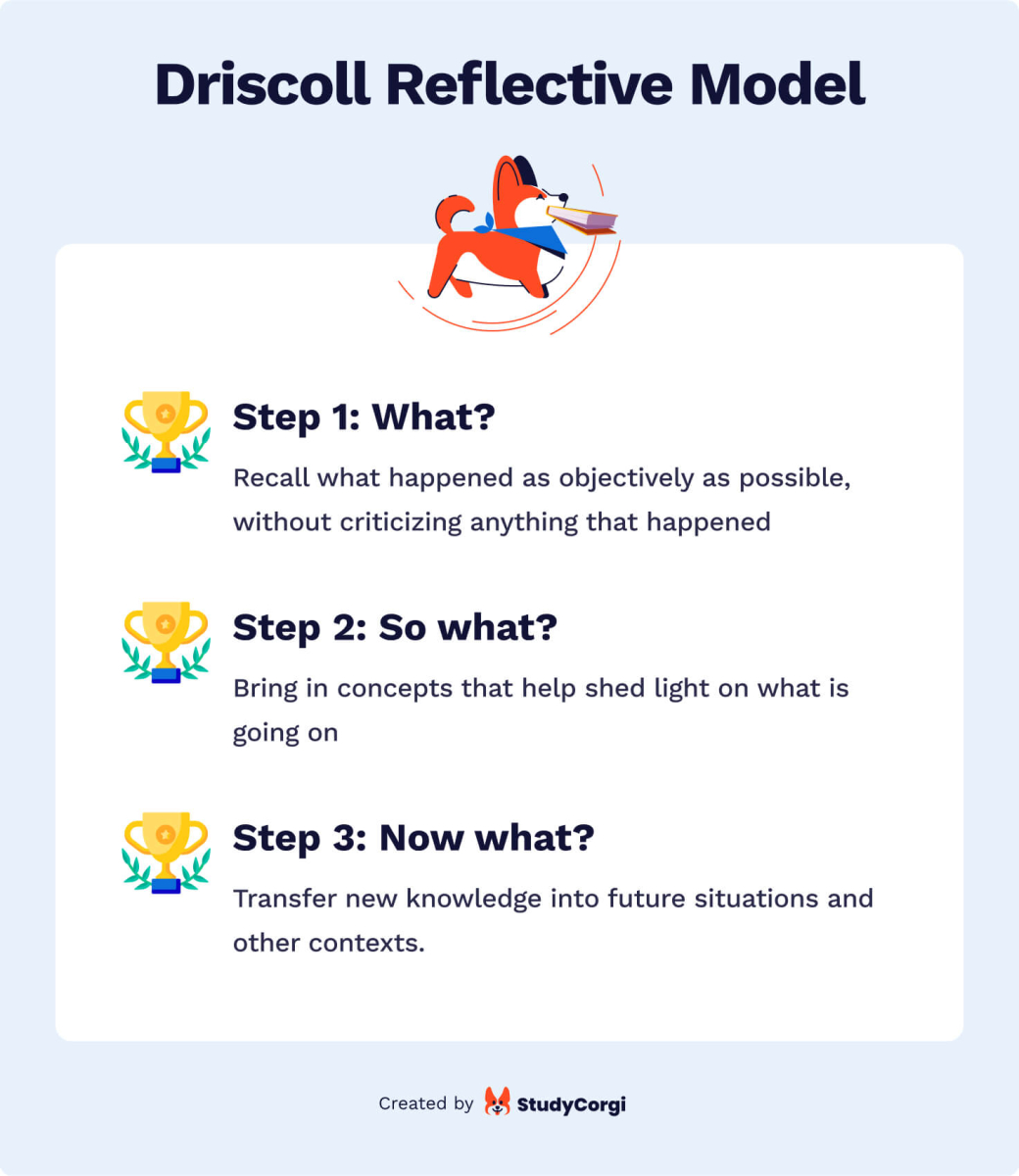
Driscoll Reflective Model
John Driskoll proposed a simple model of reflection at the beginning of the 21st century. It involves reflection through extended answers to questions we are already familiar with. The scholar linked the three basic questions to the stages of the experiential learning cycle and then added trigger questions that must be answered to complete the process of reflection.
Step 1: What? Sets out to recall what happened as objectively as possible, without criticizing anything that happened
- What exactly happened?
- What exactly did you do?
- Was anyone else involved?
- Was it a good experience? Or a bad experience? Or both? And why?
Step 2: So what? It requires you to slow down and start looking for patterns or meaningful moments. The key here is to bring in concepts that help shed light on what is going on.
- How did you feel at that particular moment?
- How did you react?
- Why did you react that way?
- Did you feel the same way about the situation then as you do now?
- Did you experience conflict with your values?
- Do you think past cases influenced your experiences in this situation?
- Who else was involved in the situation? How did they feel? And how did they react? And why did they react that way?
Step 3: Now what? Encourages beginning to transfer new knowledge into future situations and other contexts.
- What did you learn from reflecting on this situation/experience/incident?
- Could you have prevented the negative consequences?
- And how might you have done so?
- What would you have done differently if a similar situation arose in the future?
- What could you have done to better prepare for it?
- Where did things go wrong last time, and what would you focus on now?
5R Framework
The 5R Framework was developed in 2002 by a group of scientists as a universal system of reflection, later modified.
It focuses on five basic steps, each addressing one aspect of reflection. Thinking through the five stages, an individual will engage all of the major reflection components, allowing you to create a critically meaningful review based on your experience.
- Report. What do you see and hear? Write it all down.
- React. What do you think is happening? What works well and what doesn’t? How do you feel about the situation you are reflecting on? What is it about this situation that makes you feel this way?
- Relate. How do my perceptions of this situation relate to my personal and professional experiences? How do they relate to my knowledge and skills? Through what “lens” do you view this situation? From the perspective of classroom management or collaborative learning? Do you need professional development in terms of content knowledge?
- Reason. Do you relate your point of view to someone else’s and how it affects the situation? Does sound practice support your strategies, or do you use different approaches? How does your point of view affect how you understand the problem? Could another point of view be helpful?
- Reconstruct. What did you learn from this observation, and how will it affect your practice?
CARL framework
The CARL framework of reflection involves going through four stages: context, action, results, and learning. The vastness of this model gives a lot of information, and even at the first stage, you can already get a lot of valuable data. But this is also its main disadvantage because it makes the model more complex.
The framework has four steps:
- Context : Description of the context of the experience.
- Action : Explanation of the action taken.
- Results : Explanation of what your actions led to.
- Learning : Identification of the experience and knowledge gained.
Now that we’ve covered the basic concepts let’s write a reflective nursing essay.
Reflective Essay Outline
How to make a reflective essay? First, write an outline.
Any reflective essay is a statement of thoughts about something, and the outline acts as a sketch in which you write them down. Creating it is the first step to creating high quality and vivid essay.
What would make a good outline structure for a reflection essay? Structure all your knowledge. Write what you want to see in the introduction, body, and conclusion.
Here is the reflective essay outline template:
- Hook: Use a catchy statement to set the tone and introduce the article.
- Mention the main points.
- Thesis statement: Include all the important points and ideas in one statement.
- Topic sentence: Carefully explain the first idea in one sentence.
- Proof of topic or idea: Use authoritative sources to support the idea.
- Idea analysis: Apply logic and rational thought to the idea and information from the source.
- Topic sentence: Carefully explain the second idea in one sentence.
- Topic sentence: Carefully explain the third idea in one sentence.
- Repeat the statement of the thesis.
- Review the main ideas
- Final, concluding sentence
Reflective Essay Thesis
A thesis statement is a condensed version of the paper in which you must briefly explain your position. The point is for your audience to read it and understand your work.
To make a good thesis statement for a reflective essay, you need to formulate your thought on paper. To begin with, think well about the problem, and develop your attitude toward it. That’s why the thesis statement should be created after writing the outline. It is unnecessary to give everything out in advance to the reader because later, you will unfold this thought more broadly.
After successfully developing the thesis statement, you can proceed to the actual writing.
And so, below, you can see examples of the reflective essay introduction and conclusion. Learn what its body of it is.
How to Start a Reflective Essay? Examples
You need to start any paper in the right way. How to write a reflective essay introduction? Check these examples:
- Practice and theory do not always agree. Not all of the medical reference books that I have been able to study are fully applicable in practice. John Kimble’s case is a testament that it is often necessary to rely on them and consider the specific situation. He complained of dizziness, and the doctors advised him to get a blood iron test. The test showed that there was nothing wrong. But as it turned out later, this was an erroneous result because Kimble had eaten redfish rich in iron the day before, which temporarily raised the iron in his blood.
- I had always dreamed of becoming a nurse, but my fear of blood robbed me of all desire to study. But still, my passion and ambition made me pull my will into a fist. I had to change and forget what fear of blood was. I lived my dream, which helped me overcome one of my fears.
- A few years ago, I went through a severe emotional crisis. I had always dreamed of going to the University of California, as it is one of the most prestigious medical universities in the United States. But unfortunately, I failed my entrance exams, so I had to study at the university in my hometown. My failure seemed like a disaster, but now I realize it was a real blessing.
The essay’s body carries arguments, explanations of the topic, and the main body of information.
Each paragraph should begin with short introductory sentences, and the body of the sections should be divided into several parts. This will help you better structure what you have written and help the reader navigate through the text.
It is worth remembering about argumentation. There should be several things that you rely on in your position. Describe each of them in detail in a separate paragraph. Observe the semantic sequence. A mistake, in this case, will be to repeat twice the same argument in different words. It will give the reader the impression that there is nothing to say.
You should also remember about transitions in a reflective essay. Move smoothly from one aspect to another and take your time.
How to end a reflective essay? In conclusion, you should focus on pulling together all of the material, summarizing all of the points made and what you have learned. Try to include a few moments about why and how your attitudes and behaviors changed. Here are some examples:
- Was the practice of volunteer nursing helpful to me? Absolutely! I was grateful for these weeks because I learned a lot. But most of all, I have learned my Soft skills, which will help me get used to my professional activities.
- At that moment, I thought about who would be the priority in that situation, and I still believe it was the patient. If the same problem were to arise again, I think I would do nothing but speak up and justify my decisions. I recognize and know that time management and prioritization are essential skills in nursing, and I hope that my skills will improve with practice.
- I reflected on how personal values can affect professional practice from the incident. Still, it is crucial to consider that the organization has its own set of values to follow, regardless of personal values. Finally, in reflecting on the incident, I was able to discuss the importance of quality assurance monitoring and health care evaluation both in general and during the incident, which allowed me to consider what conclusions were drawn from the incident and how to prevent similar situations occurring again.
So, now you have examples and an idea for writing a reflective nursing essay. Writing your paper will become many times easier and faster.
If this article was helpful, share it with your friends and colleagues!
❓ What Is the Purpose of Writing a Reflective Essay?
A reflective essay aims to express one’s thoughts about a previous experience, including how one changed in the process and what one learned. It is often described in a diary entry; they are intended to demonstrate how the author’s thoughts have changed over time.
❓ What Makes a Good Reflective Essay?
A reflective essay is a combination of both objective and subjective elements. We mix scholarly analysis with personal experiences. This type of paper should explain to readers how our experience influences our behavior and what lessons we learned.
❓ What Are the 3 Basic Parts of Reflection Paper?
An essay should have a clear structure and must contain three parts. It should have a clear introduction reflecting the problem, then the central part with an analysis of the causes, and the conclusion with possible solutions to the problem or how it affected the author.
❓ What Is the Best Reflective Model to Use in Nursing?
One of the best options for nurses is the Gibbs model. The model is accessible and extremely simple. Therefore it can be operated without any problems in any situation.
- Reflection toolkit: The University of Edinburgh
- Essay Conclusions: University of Maryland
- Thesis Statements: UNC Writing Center
- A short guide to reflective writing: University of Birmingham
- Outlining: Harvard College Writing Center
- Reflective Practice in Nursing: ZU
- Critical self-reflection for nurse education: NCBI
- Essay Structure: Harvard College Writing Center
- Essay Structure: UAGC Writing Center
- General tips for academic reflections: The University Of Edinburgh
- Reflective essays – ANU
- Writing An Essay Title – Illinois Valley Community College
- Nursing Essay Help: Medical Essay Writing Service in UK
- Share to Facebook
- Share to Twitter X
- Share to LinkedIn
You might also like
30 google search tips & tricks for students, learning to write shorthand: the complete guide for students, infographics for students: the complete guide.
Self-reflection: Foundation for meaningful nursing practice

- Pattern recognition
- Similarity recognition
- Common sense and understanding
- Skilled know-how
- A sense of salience
- Deliberate rationality
- mental health
- RNL Feature

This site uses cookies to keep track of your information. Learn more here . Accept and close .
An official website of the United States government
The .gov means it’s official. Federal government websites often end in .gov or .mil. Before sharing sensitive information, make sure you’re on a federal government site.
The site is secure. The https:// ensures that you are connecting to the official website and that any information you provide is encrypted and transmitted securely.
- Publications
- Account settings
Preview improvements coming to the PMC website in October 2024. Learn More or Try it out now .
- Advanced Search
- Journal List
- Lippincott Open Access

Reflective practice in health care and how to reflect effectively
Kiron koshy.
a Brighton and Sussex University Hospital
Christopher Limb
b Western Sussex University Hospitals, Worthing
Buket Gundogan
c UCL Medical School, University College London, London
Katharine Whitehurst
d Royal Devon and Exeter Hospital, UK
Daniyal J. Jafree
Reflective practice is a paper requirement of your career progression in health care. However, if done properly, it can greatly improve your skills as a health care provider. This article provides some structure to reflective practice to allow a health care provider to engage more with reflective practice and get more out of the experience.
Introduction
Reflective practice is something most people first formally encounter at university. This may be reflecting on a patient case, or an elective, or other experience. However, what you may not have considered is that you have been subconsciously reflecting your whole life: thinking about and learning from past experiences to avoid things that did not work and to repeat things that did. For example after tasting a food you do not like, you remember that experience, think about it, and when you next see that same food you know to avoid it. In medicine it is one of the best approaches to convert theoretical knowledge into practice.
As you progress through medical school and into foundation years as a doctor it becomes even more common. It is now expected to provide evidence of your reflections through your training on the ePortfolio and then throughout the rest of your professional life in revalidation. Hence, it is a good idea to get it right from the beginning.
First and foremost the biggest mistake you can make when reflecting is to treat it as a tick box exercise and a waste of time. With a bit of thought reflections can be a very useful tool in learning. Would you remember a generic case from a book? Would hanging all of those facts on a patient you have met make it more memorable? It allows you to recognize your own strengths and weakness, and use this to guide on-going learning. By reflection you will develop your skills in self-directed learning, improve motivation, and improve the quality of care you are able to provide.
What to reflect on
This can be anything.
Most reflections are on things that go wrong. These situations stay in one’s head and force us to begin to think about whether they could have done anything differently. For example:
- Postoperative complications
- Missed diagnosis
- A dissatisfied patient
- Failed procedure
However, reflecting on things that went well can often be more rewarding and be just as useful. It can build confidence and help you to repeat it again on another occasion. For example:
- A well-managed cardiac arrest
- An interesting seminar or conference
- A patient thank you letter
- A difficult but well performed procedure
Stages of reflecting
There are numerous models for reflections, but it is important to understand why you are asking each question and how that will help you to reflect 1 . This an integration of many concepts but the broad process is similar in all models: what happened, why does this matter and what are the next steps? 2
What, where, and who—the situation
Think about the situation in detail: What happened exactly and in what order, where were you at the time and who else was involved? What part did you have to play? What was the final outcome?
How did it make you feel—your emotional state
What was running through your head and how did you feel about it? Be honest with yourself: were you afraid, confused, angry or scared? If you can understand how you were feeling at the time it will help you put together why things happened as they did, and help you to recognize similar situations in the future.
Why did it happen—making sense of the situation
Now you have thought about the situation in greater detail, and probably recognized things that would have otherwise gone unnoticed, think about why things happened as they did. How did the situation, yourself, and others interact at the time. Did the situation go well or was there room for improvement?

Could you have done anything differently—critical review and development of insight
With the help of hindsight how would you have managed the situation differently? Think about what factors you could have influenced: is there anything you could have tried that may have improved the situation, or is there anything you did that was particularly important in the situation? It is easy to remember the things that you did not do and it is often the things that you did well that are forgotten.
What will you do differently in the future—how will this change your practice
This is arguably the most important stage in reflecting. You need to pull together everything you have thought of before to learn, change your own practice, and improve 3 . Do not only think about what you would do differently in that specific situation, but think whether you have thought of any transferable knowledge or skills you can utilize elsewhere. For example: if you reflect on a postprocedural complication do not only think of how you would manage this again but also how you would prevent it happening if you performed the procedure yourself! If you are a part of a well-led cardiac arrest do not think only of what you would do next to help, but also how you would lead an arrest in the future, or even how you would lead a team in any other situation!
Re-enforcement—what happens when you put this into practice
Test your reflections: When comparable situations happen again, do things change as you would expect them to? This is a chance to repeat the reflective cycle to refine and develop your understanding.
How to make the best use of reflective practice
As mentioned previously most people see reflective practice as a tick box exercise, but it does not have to be.
Over the next day take note of any interesting situations that arise. Later in the day try mentally reflecting, following this framework, and if you think any will be particularly useful to you write them down. If you try this for a week you will begin to see similar situations arising and how your reflective practice is positively affecting you.
Remember: you do not always have to learn only from your own experience; learn from others’ mistakes as well. Reflect on situations that you have witnessed to work out why things happened as they did, and how this can influence you.
It can be useful to take these reflections for peer or senior review: others may be able to draw light on things you have not noticed. This can allow you to recognize points for improvement and work on them. This can also be a useful learning opportunity for the other involved!
An example to put this into practice
I was involved in a patient confrontation; the patient was unhappy with her hospital stay and wanted to be discharged home. Unfortunately she required a package of care and so could not be discharged. I explained this and she returned to her bed. I was happy I had explained everything to her and continued with my other jobs.
Who, what, and why
I was involved in a patient confrontation; an elderly patient was unhappy with hospital stay and wanted to be discharged home. She was under our general surgical team for a head injury and observation after a normal CT head. She had been seen on our ward round and told that she was medically fit for discharge but still awaiting social services: her house had been reviewed and deemed unsafe so she was waiting for banisters to be installed. The issue was raised with me by chance as I was doing other things on the ward. I explained this to her and although she remained annoyed I was able to make her understand what the delay was and she returned to her bedside. She did not seek further clarification that day.
How did it make you feel
At the time I felt rushed and frustrated. I had a lot of other work to be done and this was distracting from that. She had already been told she was waiting for social services in the morning. I understood why this was difficult for her but did not think I would be able to do anything to help.
Why did it happen
The morning ward round was quite rushed and so our explanation was limited to telling her we were waiting for social services. I can understand from her point of view this may have meant very little, and so my explanation of what exactly we were doing may have relieved some frustration. Having been waiting up to this point, it is no surprise she continued to be angry but may have been accepting of this plan.
Could you have done anything differently
I think my explanation was very good, and the patient seemed happy with this, although I did not give a rough idea of how long this would take. It may have been useful to have spoken to the sister in charge to ask for what progress had been made to feed back to the patient. Also I did not ask her whether she was happy with this explanation: I may have been able to satisfy her frustration further by answering a few more questions or even recognize any other issues at home that may need addressing before discharge. Although the information given in the ward round was correct, it was not understandable to the patient. If this had all been quickly clarified in the morning, the patient would have been happy throughout the day and not caused a problem later on.
What will you do differently in the future
I think that the route problem in this situation was our explanation on the morning ward round. Furthermore, I am not sure how long such issues take to be addressed. To avoid a similar situation in the future I will speak to the other health care professionals on the ward to get a round idea of how long occupational interventions such as this and other community interventions take to start. This means when future patients are medically fit I can spend a moment in the morning informing them of what needs to be done and how long it may take. Hopefully this will allow me to address patient concerns early to avoid them becoming an issue when it is too late.
Re-enforcement
I will reflect on how future situations similar to this develop, looking for an improvement in the quality of my patient care.
Following a structure helps to focus a reflection: I am sure you will agree the learning points are much clearer from a good reflection!
Conclusions
To summarize, the benefits of reflecting are clear: it may be difficult to do initially, but through practice you will develop your own skills and become a better learner. Many structures are available so choose one what works for you. Reflective practice is an important part of your career progression on paper, but if done well, can greatly improve your skills as a health care provider.
Conflict of interest statement
The authors declare that they have no financial conflict of interest with regard to the content of this report.
Sponsorships or competing interests that may be relevant to content are disclosed at the end of this article.
Published online 15 June 2017
- Nursing School
How to Write “What Nursing Means to Me” Reflective Essay
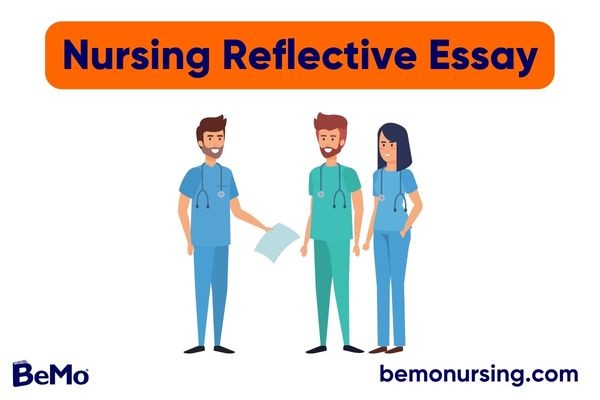
The “what nursing means to me” reflective essay is something often asked of students entering an accelerated nursing program, a master’s level course for nursing, or some other specialized program. Unlike a nursing school letter of intent or nursing school application cover letter, the “what nursing means to me” reflective essay gives you a chance to state and defend an argument regarding something you feel deeply about, namely, being a nurse. It can detail professional setbacks or successes. It can be a venue to express opinions and criticism of the profession. You can also write about important personal events in the past, before you became a nurse, which had some impact on why you chose this profession. This article will explore the nature of the reflective essay, its essential elements, the structure of an excellent reflective essay and provide examples.
>> Want us to help you get accepted? Schedule a free strategy call here . <<
Article Contents 11 min read
What is a reflective essay.
A reflective essay is like a regular essay, but the subject matter is you. You must state a thesis about yourself and choose a specific event from your past or something similar on which to build an argument supporting your thesis. The main impetus of a reflective essay is to get you to reveal growth and how a particular event in your life changed you, your perceptions, beliefs, and so on.
But there are other things a reflective essay can reveal about you. In the context of writing a reflective essay connected with a nursing school application resume, you can also use the essay to state your larger career goals and ambitions as a nurse and how you see the role changing and evolving.
How does the “what nursing means to me” reflective essay differ from a nursing school personal statement? Part of the answer is that a personal statement can include many different details from the past and does not have to take the form of a standard essay – introduction, thesis statement, supporting arguments. You can write a personal statement without including anything about your professional achievements or anything directly related to nursing. But a “what nursing means to me” reflective essay is the complete opposite. It is aimed at exploring how being a nurse or nursing student has directly impacted your worldview.
Depending on where and why you are asked to write a “what nursing means to me” reflective essay, there may be certain content and style guidelines you must follow, based on that program’s requirements. Some reflective essays use prompts or questions about nursing to give you a starting point for what to write. In these cases, how you write is up to you, but there are certain elements that are key to every outstanding reflective essay that you should incorporate into your writing. Here, we list elements you can include in the body of your essay to create a template of what your essay should look like.
The Inciting Incident
In university, reflective essays tend to revolve around coursework and materials to show how you’ve interacted with them. But according to many nursing essay writing services , a “what nursing means to me” reflective essay can structure itself around a catalyzing event. A traumatic injury. A death in the family. Moving to a new country.
If you haven’t been given instructions on what to write about in your “what nursing means to me” reflective essay, then you can choose a specific, life-altering event in your past that had and continues to have an impact on you. Many reflective essays take this path, but you do not have to, especially if you are asked to write about something else.
If you do write about a specific incident, be as specific as possible. Who did it involve? Where did it take place? What was the lead-up like? Of course, if you have word limits, then you can cut out unnecessary parts in your second draft, but for your first draft, you should be as detailed as possible and then make cuts later.
Personal Reflections
The most obvious point of a reflective essay is to reflect. Nursing school admissions officers want to know how you interpreted, compartmentalized, and dealt with an extreme situation related to being a health care worker, since everyone knows that being a health care worker exposes you to things most people never see. You can talk openly about what you’ve experienced in the nursing profession or during your schooling and, finally, express emotions you were not able to at the time. However, those emotions must also connect with an action you took later on to show that they led to some deep-seated change in your personality or outlook.
Specific Details
The topic of your essay should focus on a specific time, place, or incident and not stray into generalities. You want to place your readers in a setting they can understand, so that they can see the story as it unfolds. Remember: show, don’t tell. This is your personal story, so enrich it with specific details, like the time of year, the weather outside, some important event that happened at the same time, anything that makes the universal personal.
Your Actions
After you set the scene with vivid descriptions and a concrete location, you can start to bring yourself into the narrative. Take a step-by-step approach to write about how the specific event unfolded – before/during/after – and make sure to detail as much as you can about each step.
You can write about what your expectations were beforehand and what happened afterward. What was the aftermath like? What did you feel, physically, emotionally? What did you do? Were you in any danger? You can talk both about your physical and emotional reactions but remember that a reflective essay should walk a fine line between being a subjective and objective retelling of a major event so do not go too far either way.
Academic Details/Achievements
The reflective essay sits apart from other documentation like a nursing school recommendation letter and is not a place for you to recite your professional or academic CV. All the information about your academic achievements (GPA, transcripts) has already been reviewed, so the audience is not interested in hearing about it again.
Your reflective essay is a space for you to encapsulate something about yourself in a calm, measured tone. Of course, you can mention things about school that impacted you personally or an event that took place during your education, but reciting your CV looks boastful and misses the point of the reflective essay.
Too Many Emotions
The “what nursing means to me” reflective essay can contain many powerful emotions, but the language should always remain coherent and precise. You do not want to dwell on positive or negative emotions but instead, use them to push along your overall narrative. You can explain about how something made you feel, but then transition to what actions those emotions made you take.
Introduction
The introduction of any essay should present the topic about which you are going to write and hook the reader with an intriguing line. Afterward, you can briefly mention where you are in your career (registered nurse, nursing school applicant, grad school candidate) for context, but most of your introduction should be about the subject matter at hand, like the event you want to talk about or the general themes you want to explore.
You can also present your thesis in the introduction or keep it for a later paragraph if you want to structure your essay that way. After the introduction, you can begin to narrow your focus down to the inciting incident and move closer to finalizing your argument. You can also begin inserting background elements of your narrative like when and where it happened.
Thesis Statement/First Paragraph
If you put your thesis in the introduction, you can begin positing your arguments supporting it in the first paragraph of the body section. But you can also put your thesis here and begin expounding on your arguments in the proceeding sections. If you are writing about a specific event, this is where you would set the stage for what happens next.
Build your narrative toward a climax by describing where you were, what you were doing, and what expectations you had. When you reveal what happened, use that as a springboard to talk about the aftermath – how the event affected you and what you began to understand about it – which is what will lead you to your second paragraph.
Second Paragraph
The second paragraph can contain the “reflective” part of your essay, where you unpack the event and examine how it impacted you. You want to mention how you changed and how you began to see things differently while also expounding on the potential growth that this moment presented for you as a person and as a health care professional.
Conclusion
The end of your essay should tie into the thesis and summarize the best argument supporting it. You can draw from the body section to make the connections between your thesis and the other sections and ultimately land on a conclusion. It should reveal something significant you learned or realized because of that event and how it continues to shape you.
“What Nursing Means to Me” Reflective Essay Samples
“what nursing means to me” reflective essay sample #1 .
Things came into focus when I started coughing up blood. Up until then I was sure things would get better and that the danger would pass. Even though a doctor had told me I needed to be hospitalized, I thought nothing was wrong and that I would be okay. I told him to give me some antibiotics and send me home. But from one minute to the next, in the space of a heartbeat, something gave way, and I would not be the same again.
I have been lucky most of my life. I had never been seriously ill or broken anything. I had family members succumb to illnesses, but I hadn’t so much as scraped an elbow. I never thought about my fragility and vulnerability until I was forced to reckon with them when I was hospitalized with pneumonia.
Going to the hospital in an ambulance for the first time was nerve-wracking. I lay in the gurney with an oxygen mask over my face as the paramedics looked at my vital signs. I was feverish, short of breath, and still coughing, so there was barely any time to think or reflect. Things had progressed so fast that I had left my house still in my pajamas.
One of the first things that happened when I got to the hospital was that the attending nurse took my hand and told me, “You’re in good hands now, darling.” It was such a small gesture. She must have done it for everyone who came in, terrified, scared, and lonely. She knew what they were feeling, which is why she said it to everyone.
I spent almost two weeks in the hospital recovering, but that nurse came to see me every day and spent time with me, even with her busy schedule. She made the time. It was after one of her visits that the thought of being like her one day came into my mind. I was in my first year of undergrad and still hadn’t thought about my future.
The experience of being seriously ill made me realize how much we depend on the strangers who have committed their lives to helping the infirm. It is a vital role that nurses play in helping the ill feel whole again, often more so than doctors, because nurses spend more time with patients than any other health care professional.
The nurse who greeted me at the hospital entrance also helped me bring things into focus. Seeing up close the damage an illness like pneumonia can cause was one wake-up call, but the nurse who comforted me when I felt like the world was ending also woke me up. She met my fear and anxiety with compassion and understanding. She created the mold that I now wish to fill with my career and advancement in the nursing profession.
It was bright and sunny the day my mother died. She died in the early morning, and when I looked out the window of her room – she died at home – I could see people waiting for the bus, going on their way to work, completely unaware that I had lost the most important person in my life.
I wanted to go outside, tears streaming down my face, and tell everyone my mother had died. I wanted to spread my grief. I wanted the world to stop and acknowledge my loss. Grief was something new, and I didn’t know how to manage it.
I went on anti-depressants and began to self-medicate as well because I couldn’t stand the pain. I was going down a self-destructive path, and no one in my immediate family knew what to do. It was only through circumstance that my path was corrected before it led farther into darkness.
One afternoon, months after my mother’s death, I was at her house, arranging and organizing her belongings, when the palliative care nurse who had treated my mother at home came by to collect the medical supplies that had been left behind. It was pure luck that I was at home when she came.
I answered the door and invited her in. I explained what I was doing, and she told me why she was there. We went to the kitchen because she said she had some papers for me to sign. I don’t know why exactly, but between putting the kettle on for some tea and signing the papers, I started to cry. It was something I had been doing regularly, breaking down in public or suddenly, without warning. But that day, I showed my vulnerability to the right person.
The nurse, named Sylvia, rose immediately and gave me a hug. She held me as I wept and then began to tell me that she still mourns her sister. Her sister had died from the same illness as my mother and, according to Sylvia, had suffered just as much. Sylvia told me that she had dealt with her sister’s passing by pushing herself through nursing school. She wanted to memorialize her sister’s memory through the work she does every day as a nurse. Instead of letting her sister’s death tear her apart, like my mother’s death was doing to me, Sylvia took motivation from it and committed to becoming a person who helps people transition from life to death.
Sylvia told me that the pain never goes away, but it does lessen and when you are helping save lives and taking care of the most vulnerable people, it lessens even more. That day, Sylvia showed me the heights nurses can reach through their empathy and knowledge, not just as nurses but as human beings. Sylvia’s strength was my scaffold during an unsteady time, in addition to being the light that inspired me to become a nurse myself.
The thoughts in a reflective essay are your own, so you should not shy away from saying as much as possible, like the fact that you were afraid or felt negative emotions like anger, hatred, or despair. This is what the reflective essay is all about. If your essay is about a specific event in your past, then you should write about it in detail. You can allude to it in your introduction and build up to it through your main paragraphs, or not mention it at all in your introduction and reveal it later.
Being any kind of health care worker is demanding and stressful, but it can also be rewarding and humbling. The “what nursing means to me” reflective essay is the perfect way to talk about a moving or troubling incident in the past if you hadn’t had the chance to explore it before. It is not always possible for nurses and other health care professionals to express the emotions that come with the job, and working with a nursing essay writing service can help you craft a truly impressive account of an event that marked you deeply.
This essay is meant to help you express what is most important to you about being a nurse and reveal how you stay motivated.
The purpose of the essay is to let nursing school admissions officers know how you understand and interpret the nursing profession and what aspects of it appeal to you the most.
You can structure your essay around a specific event and then describe what happened before, during, and after this event. You can also talk about why this event means so much to you or what about it reflects the best aspects of nursing.
You should think about the reasons you wanted to become a nurse and what about your character or personality will sustain you throughout your career.
The length of your essay depends on the requirements of your particular program or school, since they all have different requirements.
A personal statement is a general background story of why you want to pursue a degree or get into nursing school, but a reflective essay specifically asks you to pick a particular moment and think about how it affected your career. So, a reflective essay is the reverse of a personal statement: rather than relating how personal experiences have shaped your personality, you write about how being a nurse has changed you personally.
A letter of intent looks at how your education, work experience, and anything else related to the nursing profession has prepared you to become a nurse, and also asks what you plan to achieve. A reflective essay does not focus on academic achievements but asks you to interpret a moment in the past.
Not all nursing schools or graduate programs will ask for a reflective essay. Admission requirements are different for every school, so make sure you know what they are before you apply.
Want more free tips? Subscribe to our channels for more free and useful content!
Apple Podcasts
Like our blog? Write for us ! >>
Have a question ask our admissions experts below and we'll answer your questions, get started now.
Talk to one of our admissions experts
Our site uses cookies. By using our website, you agree with our cookie policy .
FREE Training Webclass:
How to make your nursing school application stand out, and avoid the top 5 mistakes that get most rejected.
The Power of Self-Reflection on Nurse Well-Being
- Written by Nursegrid Team

Staying motivated as a nurse can be tricky—who hasn’t spent a few hours after a particularly long and tiring shift replaying the whole thing in their head? We’ve all been there. But, unfortunately, it’s human tendency to dwell on the negative while letting the positive fade away. Not only is this unhelpful, but it’s also not providing any benefits to your well-being or your passion for nursing.
Need a better approach?
At Nursegrid, we like to look at the entire shift. Take the good with the bad, and balance the observations about what went wrong with what went right. We call this practice shift reflection, looking at every aspect of a shift objectively while it’s still fresh in your mind. We feel it’s one of the keys to building resilience and helping nurses thrive.
We sat with Susan Bauer-Wu, a registered nurse, president of the Mind & Life Institute and a Keener app advisor, so she could explain why this easiest of “contemplative practices” works and how nurses can make it a habit.
She confessed that she wished she had had this powerful tool in her toolbox when she was a nurse. “I know it would have been helpful,” she said. “Over time, I’ve learned that reflection after a full and intense workday can help me make sense of things, remind me of what I accomplished, and reinforce that I’m making a difference.”
Let’s take a closer look at why taking the time to reflect is so important.
Shift reflection can help you make sense of things.
Every shift has its challenges; there are so many variables when it comes to nursing – attending providers might be short with you, patients might pass away on your shift, a colleague may challenge you. And when these types of things happen, it’s best to process them sooner rather than later.
“Shift reflection lets you mentally synthesize what happened during the work shift, so you can more freely let go and relax when you’re home,” Bauer-Wu said. “It also helps you be more mindful and gain insights into how you felt and responded to what happened during the shift. That way, you can learn to turn off your autopilot and instead establish — and reinforce — positive, skillful habits and ways of responding to work challenges.”
Shift reflection can be a reminder of your accomplishments.
A nurse’s schedule can be crazy, and a lot can happen in a 12-hour shift. And when you add in back-to-back shifts, it gets even harder to remember anything from those first few hours. That’s why Bauer-Wu says taking the time for shift reflection is critical, as it can help you recall, reaffirm, and consider all the things you accomplished or learned.
“This can be big life-saving kinds of things or simpler ways of bringing a smile to a patient, family member or colleague through something you said or did,” she said.
Self-reflection can replace frustration with motivation.
A tough shift can be enough to make you want to turn in your badge and throw away your scrubs, especially when those unhelpful ruminations follow you around long after you’ve clocked out.
But letting go of those “I can’t do this anymore” feelings and remembering you are making a difference can be critical in maintaining your motivation and passion.
“[Taking the time to reflect helps] connect nurses to their professional calling and can bring meaning and fulfillment to their work and lives,” Bauer-Wu said. And making the time to reflect on those feelings of gratitude and fulfillment can help to balance out the unavoidable, stressful aspects of working as a nurse.
How to develop a habit of shift reflection.
There’s no denying the importance of reflection when it comes to working as a nurse. From personal well-being to long-term career motivation, taking the time to process and reflect on your working hours is critical when it comes to nursing.
So how do you go about developing a habit of shift reflection?
If you’re using Nursegrid to keep track of your schedule, it’s easy to use our latest feature, Shift Reflection, to reflect on your shift, release any work-related stress, and keep a log of any emotions that come up.
Another option is to utilize your commute, like Bauer-Wu. “I’ve found it helpful to do such reflection on my way home from work,” she said. “It’s a transitional buffer between work time and home life, so when we get home, we can be more fully present for our family and personal responsibilities.”
Journaling is also a great way to process and reflect on the events of a shift. “Writing can help us gain perspective and feel like a greater release than simply mental reflection,” she said. Writing things down can also help to mentally let go of any anger, stress, or frustration.
No matter which route works for you, be sure to reserve time to reflect on what went well that shift or what you found particularly rewarding. Bauer-Wu recommends trying to identify three specific experiences during the shift that brought you a sense of accomplishment, joy, or satisfaction.
Cultivate empowerment and affirmation with shift reflection.
Developing a habit of self-care and reflection after each shift can help cultivate positive emotions that work to counter or prevent burnout while supporting your well-being and mental health.
“The more we can notice and reflect on rewarding experiences during the workday, the more affirmed and empowered and better we’ll feel,” Bauer-Wu explained.
Creating time and space for this type of reflection can have a ripple effect on everyone around us — our patients, families, colleagues, and friends.
So, the next time you clock out, take a few minutes to reflect, release, and create a better work-life balance.

- Published: December 8, 2022
Nursegrid Team
- End Short-Staffing
- Survey Results
- White Papers
- Hospital Solutions
- Refer a Friend
- 866-635-8151
- [email protected]
- 500 11th Avenue North
- Nashville, TN 37203
iPhone® and App Store® are registered trademarks of Apple Inc . Google Play and the Google Play logo are trademarks of Google LLC.
ToS | Privacy | MSA | Cookies
Nursing Reflective Essay: Example Outline and Guide
Are you a nursing student? Then, you will definitely have an assignment to compose a nursing reflective essay. This task might be quite tough and challenging. But don’t stress out! Our professionals are willing to assist you.
Our specialists will write a custom essay specially for you!
First and foremost, let’s figure out what’s reflective writing. In a few words, such essays are based on your experiences, feelings, views on something, etc. For nursing students, reflective papers help to practice their skills and expand their knowledge.
In case you are wondering how to master nursing essay writing, you are on the right page. This article will provide tips that will help you write an outstanding student nurse reflection: examples of what to include in it, what to avoid, and what reflection ideas to use.
- ✒️ Analytical Essay
- ✒️ Reflective Essay
⭕ Outline and Draft
- ⭕ Revise and Edit
- ❓ Reflecting
- ❗ Essential Parts
- ⚠️ Mistakes to Avoid
- 💡 Additional Tips
🔗 References
🆚 analytical vs. reflective nursing essay.
Basically, nursing essays can be divided into different types.
The most common ones are analytical and reflective essays. These two styles are the most suitable for nursing papers. They either argue a particular perspective (analytical) or base the narration on previous experiences (reflective).
This focus is what differentiates one type of essay from another, as both analytical and reflective nursing essays can be quite similar stylistically.
Just in 1 hour! We will write you a plagiarism-free paper in hardly more than 1 hour
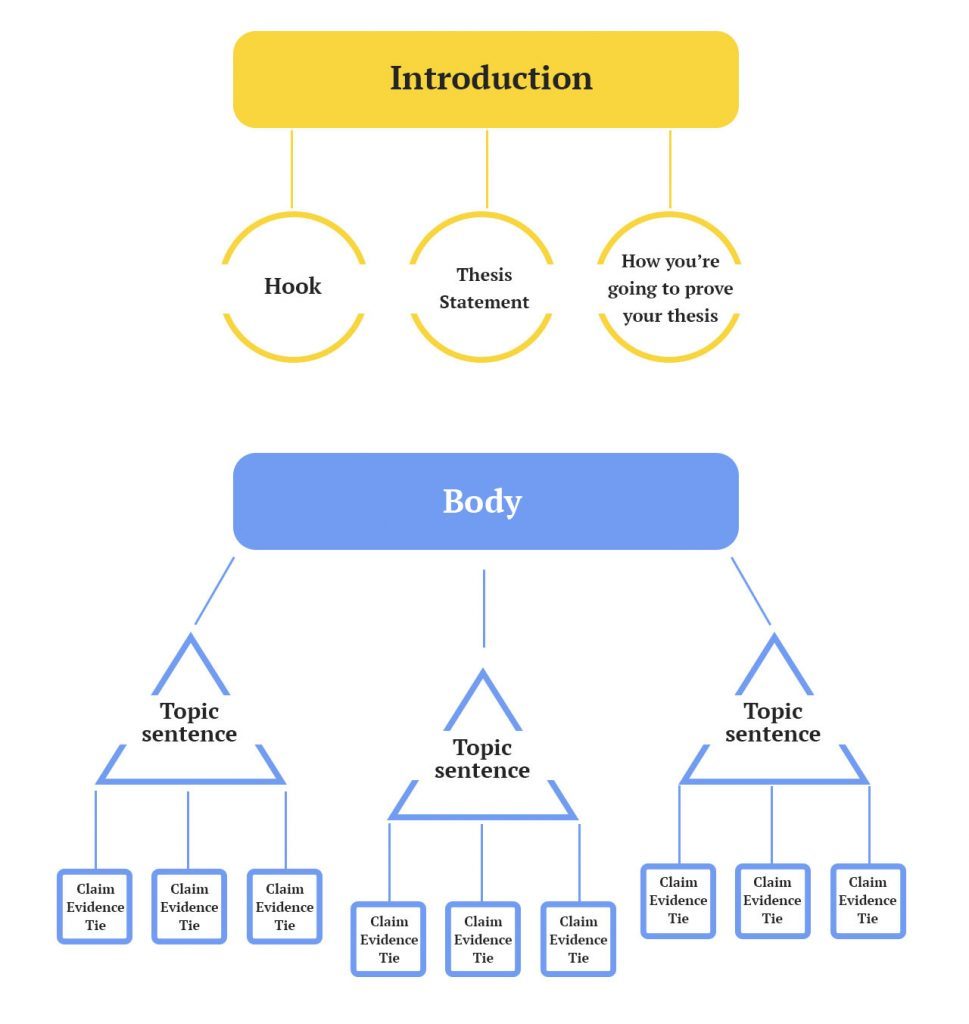
✒️ Nursing: Analytical Essay
Speaking of structural parts, the basic outline for an analytical essay on nursing can look like this:
- Introduction. The introduction is your first paragraph, which usually consists of two parts. First, you have to capture the reader’s attention. Then, you aim to create a clear thesis statement to demonstrate your position.
- Providing evidence. Each of your arguments should have at least one piece of evidence. If you have more to share, it’s even better. However, you have to keep the word count in mind. So, make strong points to keep your essay concise.
- Practical use of evidence. There’s no point in providing evidence that wouldn’t have any real use in practice.
- The judgment of evidence. Here, you’ll demonstrate your critical thinking abilities. Prove that your evidence is indeed strong and valid.
- Conclusion. First, summarize what’s been said in your essay. Then give your own opinion on it.
✒️ Nursing: Reflective Essay
A reflective nursing essay usually consists of the following elements:
- Introduction. It explains the whole purpose of the essay and tells readers what to expect. The most crucial part of the introduction is the thesis statement. Usually, it’s the last sentence of the intro. Your thesis should be concise and clearly reflect your position.
- Description of the situation. Since a reflective essay is based on previous experiences, describing those events is the core part of the paper. Again, this section should contain only the most important and valuable details.
- Sharing of personal feelings. The section demonstrates how you react to situations and how you’re able to gain control over those emotions.
- Evaluation of experience. This part is a summary of what skills and knowledge did you get from experience.
- Reflection and opportunities for learning. The part is closely connected to the previous one. While previously you were just giving a summary, here you’ll describe what this situation made you understand. Also, elaborate on your future path of self-development.
- Conclusion. This one is simple. Just summarize all the information you discussed in your essay.
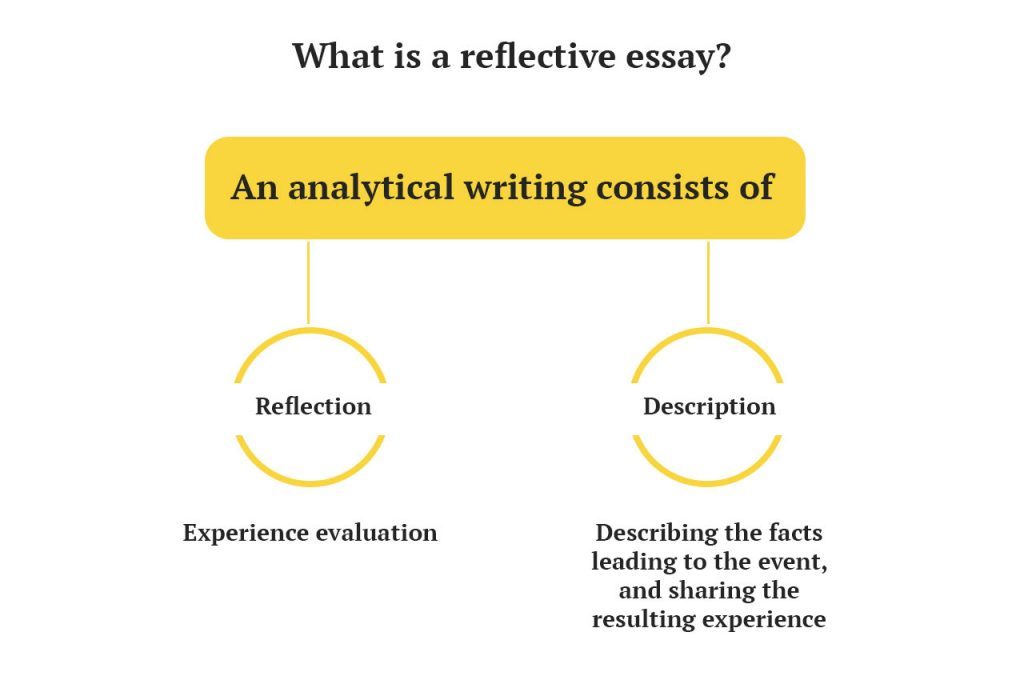
We’ll now tell you about the writing preparation process.
✍️ Reflective Nursing Essay Writing Guide
Creating a nursing reflection essay is a long and challenging journey that requires total concentration on a task. That’s why it is essential to turn your “study mode” on and devote yourself to the essay writing process.
No doubts, you might get too overwhelmed by the amount of work you have to get done. But don’t worry! We know how to avoid anxiety. Just follow out tips and write an outstanding nursing reflection paper!
Receive a plagiarism-free paper tailored to your instructions. Cut 15% off your first order!
⭕ Remove the Distractions
Yes, it’s as simple as that. Ironically, most of the major problems usually happen at this initial stage. So, you just need to know how to overcome them right away.
- Turn all the gadgets off (yes, even your cell phone).
- Make sure to get rid of anything around you that could potentially catch your attention and distract you from writing.
- Get earplugs if necessary.
Then, get in your “ study mood .”
- Go through all your pre-game rituals — visit the bathroom, eat, drink, meditate, etc.
- Get fun out of the way. Dedicate some time for yourself so that you won’t have the temptation later.
- Prepare the essentials — open your notebook or create a Word document and make sure you have all the necessary notes and resources ready.
After you create perfect conditions, make another significant step to start writing. Research is an essential part of any academic work, even if you’re telling your personal story.
Here’s where you can start your search for brilliant ideas:
- your college library;
- your course readings;
- scholar.google.com ;
- online nursing journal articles;
And no matter what topic you’re going to discuss, don’t forget that most nursing essays use a similar pattern:
Get an originally-written paper according to your instructions!
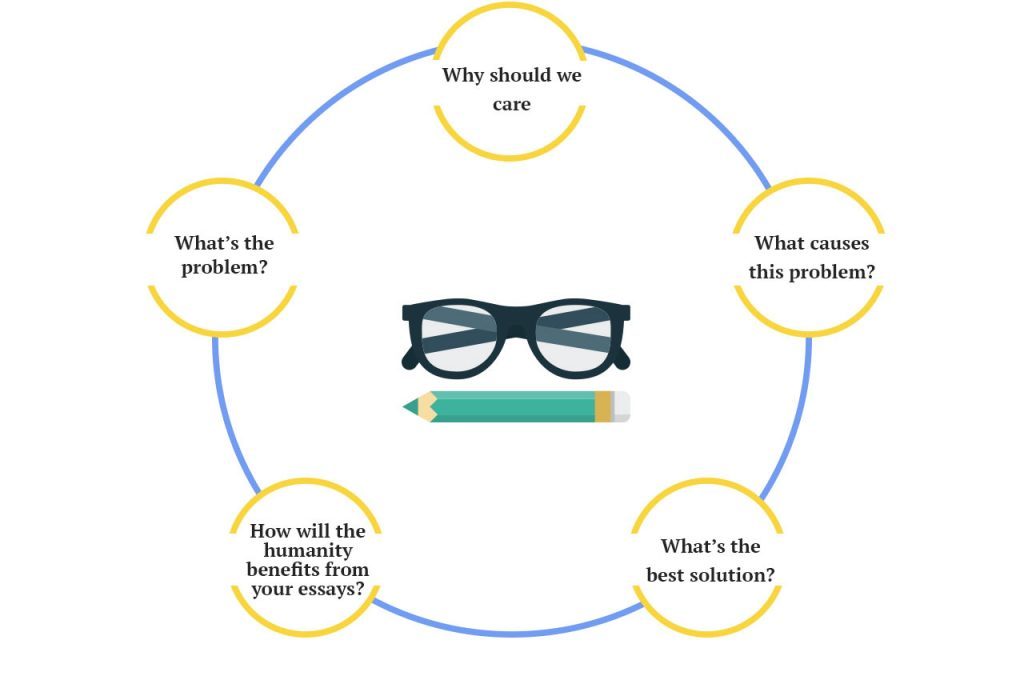
You still need to remember what we talked about in the very beginning—your story has to be unique. Use these questions as a framework, and fill the essay with unique content. If you’ve answered most of these questions, you’re halfway to your excellent grade.
No wonder outlining is a vital part of the essay writing process. It helps to reach the logical flow of ideas and organize all the arguments and examples in the right order. Also, you can easily edit a well-developed structure if something seems wrong. It’s always better to change the part of an outline rather than rewriting the entire paragraph.
Your reflective essay outline should look approximately like this:
- Point 1 (evidence, examples, other supportive details)
- Point 2 (evidence, examples, other supportive details)
- Point 3 (evidence, examples, other supportive details)
- Restatement of thesis statement
- Final memorable statement
After creating an outline, it would be a great idea to write the rough draft of your nursing reflective essay. This step will help you to avoid all the possible mistakes before submitting the paper.
⭕ Proofread and Revise
Polishing your essay is the last but not the least step of the writing process. So, take it seriously and don’t waste your chance to submit a flawless work. Revise your rough draft, make sure your ideas are coherent and supporting evidence is logical, and then create a final version of the essay.
We created the checklist of what you should take into consideration while revising your nursing reflective essay. Don’t hesitate to use it!
- make sure you meet the writing style requirements;
- check whether all in-text citations have the corresponding reference list entry;
- make sure you followed the proper structure (introduction, three body paragraphs, conclusion);
- get rid of all grammar and punctuation mistakes;
- double-check whether your ideas are clear and the supporting details are logical.
📝 Reflective Essay: Nursing School Application
Although people say there is a lack of nurses in the United States and a high demand for good specialists with a stellar education, it is not that easy to pass a nursing school admission.
What’s the reason for this?
It seems like nursing schools are looking for outstanding students, who have made a firm decision to become a nurse and will contribute to the community of the school and the field of healthcare in general.

You need to showcase this capability in your nursing application essay, where you reflect on your goals or experience. In the following sections, we’ll explain how to write it.
❓ Reflecting on Your Goals
Here’s a question you should ask yourself.
“Why do I want to become a nurse?”
As curious as it may sound, some students do not have that answer. If you are one of them, you might want to reconsider your decision.
Being a nurse is stressful. It requires dedication, a strong philosophy, and stable mental health. And if you’re unsure about your choice — try to make up your mind as soon as possible. Getting a nursing education is a serious step in your life. So, be confident about your choice not to regret it later. The video below will give you an idea of what a day in the life of a nurse is like.
If your intentions are firm and you’re sure about your career goals, then we’re here to help you cope with all those “Why I chose nursing” essays.
- Know where to begin with your nursing essay. A good idea would be to find several nursing essay examples first. You will see that many students do not try to be creative. The same boring stories can be found in numerous essays. And it seems that those stories are taken from the same articles. This does not sound impressive at all. Repeating familiar stories is quite a critical mistake, and you should avoid it. We’ll talk more about common errors in nursing essay writing later, so keep on reading. Look through nursing paper examples and try to make your essay on nursing career different. Make it stand out from the crowd.
- Base your essay on a true story. Think about any situation from your clinical placement, which your reflective nursing essay will be based on. Describe what happened, who was involved in the case, why it impressed you, etc. By doing this, you’ll demonstrate a complete understanding of the situation. Your essay will show that you’re able to comprehend what’s happening and make the right decisions, even in critical cases. These are skills that every nurse should have.
- Write a personal essay. Now, proceed to describe your feelings. Follow these three questions: How did you feel in that situation? Why? What were your actions, actions of other personnel? Be sure to tell how much you care about what happened. It’s a great way to show how sympathetic you can be.
- Evaluate the event. Another stage of writing the reflective nursing essay is an evaluation of your experience. Why do you think it is a valuable experience for you? How did it contribute to your personal and professional development? Self-development is among the most important aspects of professionalism for a nurse. And you must not forget to show that you have this capability.
- Choose the right focus. It’s common for students to concentrate on a story that deals with the nursing profession. This is a strategy that you too can follow when writing your nursing essay. Make sure that the narrative focuses on you instead of other nurses or patients. It is your essay, so be sure to write about your personal experience. You have to tell the reader about all the lessons you have learned and explain how it helped you come up with a decision to become a nurse.
- Allow yourself to fantasize. There’s another critical subtopic you should cover in your nursing essay. Tell what other actions you could take and whether you would repeat them if you are to face the same situation.
Next, we’re going to talk about the parts that make up a well-written nursing essay. So, stay with us!
❗ Essential Application Essay Parts
You probably know that competition in nursing schools is especially severe compared to other educational institutions.
Your paper should be outstanding if you want to be accepted. Below, you’ll find a list of the most significant parts of any nursing admission essay. These parts contain all relevant info that the admission officers want to know about an applicant.
- Is there someone who influenced your decision?
- Was there an event that had an impact on your choice of a career?
- Do you know what particular kind of nursing you want to do?
These are essential questions to answer in the nursing school essay. You do double-duty by responding to these questions. Not only will you explain how you decided to become a nurse, but you’ll also make sure that your intentions are truly firm.
- Show what you’re worth. You need to tell about your experience in the nursing field. This is a job where you need at least some background experience. If you have never seen a syringe in your life, your nursing essay will hardly convince anybody. So, make a personal statement. And make it strong.
- Prove that you’re ready. You need to show that you are prepared to be a nurse and ready for all nursing hardships. Nursing is emotionally and physically exhausting. That’s why you need to demonstrate the best of your personal and professional values. Prove to the admission counselors that you are capable of completing the nursing job.
⚠️ Nursing Reflective Essay: Mistakes to Avoid
As we have mentioned before, the competition is going to be tough. It is not easy to enter a nursing school even with the best scores and a high GPA. So, your essay should be of the highest quality!
One of the best ways to ensure your works’ flawlessness is to learn the most common mistakes and avoid them in your paper. Below, you will find the list of the most critical errors for a nursing application essay. Investigate them here:
- Not including your own nursing story. Without a real-life story, a nursing application essay seems very weak. Listing personal qualities that a nurse should possess is not enough. Tell a story that will show the admission officers how helpful you were while providing care to somebody.
- Not sharing your experiences. Your nursing application essay will undoubtedly lose a couple of points if you do not mention some nursing-related experiences. A strong intention to become a nurse is great, of course. However, if you have no idea what nursing is all about, your essay will not be convincing.
- Not providing sufficient reasons to support your intentions. It is ridiculous to remind about that, but some students still fail to mention why they want to enter a certain school. Make sure to avoid this mistake in your nursing application essay.
- Plagiarizing. Plagiarism can cause you to fail your paper or be rejected by the schools you’re applying for. More importantly, plagiarizing isn’t ethical. To avoid any potential issues, make sure to cite all your sources and provide an authentic and unique story.
- Repeating yourself. This problem is widespread in the introduction and conclusion. If you need to connect the first and the last paragraphs, don’t just rewrite the info from the introduction into a conclusion. Rather synthesize your thoughts and finish your essay dynamically.
💡 Nursing Reflective Essay: Additional Tips
We’ve come to the point where you can go ahead and start writing your nursing essay. But there’s one more thing…
The process of writing a nursing essay has its own tips and tricks. So, we simply couldn’t let you go without sharing a few of them.
Hopefully, you’ll find these nursing school essay tips useful:
- Always start working on your student nurse essay with studying assignment instructions. It is the best way to find out what exactly will be assessed in your paper.
- Do not hesitate to ask your tutors for help and advice. Whether you believe it or not, but they do not want you to fail student nurse assignments and essays.
- To prepare a good student nurse essay, you will have to find and read quite a lot of nursing literature. Mind that it usually takes a lot of time. So, start researching early.
- Student nurse essays have a standard structure. Thus, make sure you have all the necessary paragraphs. Do not forget about specific terminology that should be used in your works. Also, remember about the proper formatting of your paper (e.g., MLA, Chicago, or APA format).
- How to summarize an article without plagiarizing ? Keep your text balanced. When looking through your draft, pay attention not only to the logic of your narration. Also, check how much of the paper consists of your own thoughts and what percentage is a review of other people’s work.
With these tips in mind, it’s now your time to shine!
Nursing Reflective Essay Topics
- Strengths and weaknesses of nursing professionals.
- Analyze the methods clinical nurses use to deal with moral distress.
- Examine the types of errors in nursing.
- Describe the role of technology in nursing care.
- The role of the nursing professional in patient advocacy.
- Peculiarities and importance of nursing interventions in the pre-op period.
- The crucial role of communication in nursing.
- Is MSN course worth studying?
- Examine the importance of cultural competency in nursing practice.
- What is the best nursing recruitment strategy and why?
- The critical role of QSEN competencies in becoming a better nurse.
- Collaboration and communication issues in nursing practice .
- Personal integrity and accountability in nursing practice.
- Describe the aims and key concepts of nursing care delivery model.
- Analyze the basic nursing theories.
- Discuss the occupational health and safety risks of practicing nurses.
- How to reduce the rate of workplace burnouts in nursing profession.
- Advantages and disadvantages of becoming a clinical nurse leader.
- Analyze the main reasons for nursing shortage.
- Describe the challenges of family nurse practitioner and the ways to overcome them.
- The importance of nurses providing care for elderly at home .
- Examine the elements that the nurses should take into account to improve the care of diabetic patients.
- Why knowledge and application of psychological theories are vital for nursing practice.
- Why is it necessary to integrate cultural competence in nursing practice?
- Do Christian values play an important role in nursing practice?
- Discuss the significance of evidence-based practice to nursing.
- Explain how a nurse can use a personal digital assistant to enhance performance.
- The challenges of language barrier and cultural diversity in nursing practice.
- Cultural sensitive approach in nursing and health care.
- Describe ethical and moral dilemmas of nursing.
- Why strategic management is important to a trained nurse.
- Discuss the issues of combining a nursing job and Jewish traditions.
- The issue of aging of the nursing population.
- Analyze the peculiarities of Cuban-American culture and its influence on nursing practice.
- The role of nurses in healthcare delivery.
- The issue of applying theory to practice to manage stress in nursing.
- Describe the advantages and disadvantages of different leadership styles in nursing.
- Examine the specifics of women’s nursing.
- The leadership role of nurses in the healthcare system.
- Explain how a nurse can be a cultural broker of the community.
- Why do people choose to become nurses?
- The types and benefits of technologies used in nursing profession.
- Analyze why a mandatory overtime in nursing profession is a controversial solution.
- Describe the reasons of burnout in nursing profession.
- How to resolve the nursing shortage problem.
- Discuss the effective strategies to improve nursing ratios.
- Psychological effects of COVID-19 that result in hospital nursing shortage.
- Compare and analyze the specifics of the community virtual ward model with the inpatient nursing care model.
- The importance of clear vision to nursing leaders.
- Discuss whether the use of social media can violate ethical nursing practices.
Writing a nursing essay doesn’t have to seem so difficult anymore. So, go forth and do it. Make it flawless because it’s your very first step on the way to success.
Also, don’t hesitate to share your thoughts! Did we miss something? Want to add more helpful info? Write about it in the comments below!
Further reading:
- How to Write an Expository Essay in Simple Steps
- Essay on Dengue Fever: How to Write + Free Examples
- Objective Essay Writing: How to Write, Topics and Examples
- French Essay Writing: How-to Guide and Examples
🤔 Reflective Essay in Nursing FAQ
A good essay of this kind is a reflection of personal feelings, impressions, and motivation. It should be based on a real-life example. Describe an unusual situation you’ve faced during the clinical placement program. Analyze the emotions it provoked, what could have been improved, etc.
Before you start writing, focus on your personal impressions provoked by a certain event or topic. Then put them down and organize cohesively. Do not forget about an appropriate introduction and a memorable conclusion.
If you are to write a good application essay to progress your career as a nurse, start with formulating your personal motivation to pursue this occupation. Draft the arguments and relevant examples, and then distill the right wording to make your paper persuasive and impressive.
It is a good idea to read some examples of reflective essay conclusions, but make sure that your own version is personal and sincere. A reflective essay is all about your own thoughts and perceptions, so you may simply paraphrase and summarize them.
- Ten Terrific Tips for New Nurses Dealing with Difficult Patients
- Volunteer Nursing Abroad
- Ten Ways How to Get in and Gain Experience in Nursing
- Critical Thinking and Writing for Nursing Students
- Learning Opportunities in Adolescent Nursing
- Clinical Nursing Resources
- The NHS Constitution for England
- The National League for Nursing Core Values
- Reflective Writing: About Gibbs Reflective Cycle
- Nursing Reflection Essays
- Share to Facebook
- Share to Twitter
- Share to LinkedIn
- Share to email
![self reflection essay in nursing Remembering an Event Essay: Examples and Guidelines [Free]](https://custom-writing.org/blog/wp-content/uploads/2020/12/businessman-touching-eyeglasses-is-using-digital-tablet-284x153.jpg)
Throughout our life, we meet plenty of people and participate in various events. If some of them are just regular, the other people or occasions play a critical role in our fates. Your life-changing experience might become a perfect ground for creating a remembering essay.
![self reflection essay in nursing Environment vs. Development Essay: Tips & Topics [2024]](https://custom-writing.org/blog/wp-content/uploads/2020/12/storage-tanks-284x153.jpg)
Environment vs. development is a multifaceted present days’ dilemma. On the one hand, environmental problems are increasing year after year. We have more polluted areas on our planet, more polluted rivers, fewer trees that produce oxygen. On the other hand, can we stop development and progress in various fields? Is...

What does an essay look like? At a glance, the answer is obvious. An essay looks like a mere piece of paper (one page or several pages) with an organized text. It’s generally divided into five paragraphs, though there may be more. The essential essay structure includes: Yet, will this...

Some students find writing literary analysis papers rather daunting. Yet, an English class cannot go without this kind of work. By the way, writing literary analysis essays is not that complicated as it seems at a glance. On the contrary, this work may be fascinating, and you have a chance...

These days, leadership and ability to work in a team are the skills that everybody should possess. It is impossible to cope with a large educational or work project alone. However, it can also be challenging to collaborate in a team. You might want to elaborate on importance and difficulties...

Racial profiling is not uncommon. It’s incredibly offensive and unfair behavior that causes most of the protests in support of people of color. It occurs when people are suspected of committing a crime based on their skin color or ethnicity. Unfortunately, most people are unaware that racial profiling is an everyday...

Without a doubt, a natural disaster essay is a tough paper to write. To begin with, when people encounter a disaster risk, it’s a tragedy. Emergency situations can affect hundreds, thousands, and millions of people. These are the crises and events that change people’s lives drastically. So, disaster and emergency...

“You are not only responsible for what you say, but also for what you do not say”Martin Luther There are a lot of other good quotations that can serve as a good beginning for your essay on responsibility and provide good ideas for writing.

Exemplification essays, which are also called illustration essays, are considered one of the easiest papers to write. However, even the easiest tasks require some experience and practice. So, if you are not experienced enough in writing exemplification essays, you will face certain challenges.

You push the snooze button once again and finally open your eyes. It is already 8:50, and your classes start at 9. “I’m going to be late again!”— you think, already in full panic mode. In a minute, you rush out the door half-dressed, swallowing your sandwich on the go. ...

An essay about Harriet Tubman is to focus on the biography and accomplishments of a famous American abolitionist and political activist of the 19th century. Harriet Tubman was born into slavery, escaped it herself, and helped others escape it. She changed many jobs throughout her lifetime, being a housekeeper, a...

What is a documented essay and what is the purpose of it? It is a type of academic writing where the author develops an opinion relying on secondary resources. A documented essay can be assigned in school or college. You should incorporate arguments and facts from outside sources into the...
You’re awesome! Thanks for these nursing reflective essay writing tips! Thanks! Thanks! Thanks!
Thanks for your nursing reflective essay guide. It really helped me cope with my reflective essay in nursing.

Reflective Nursing Essay
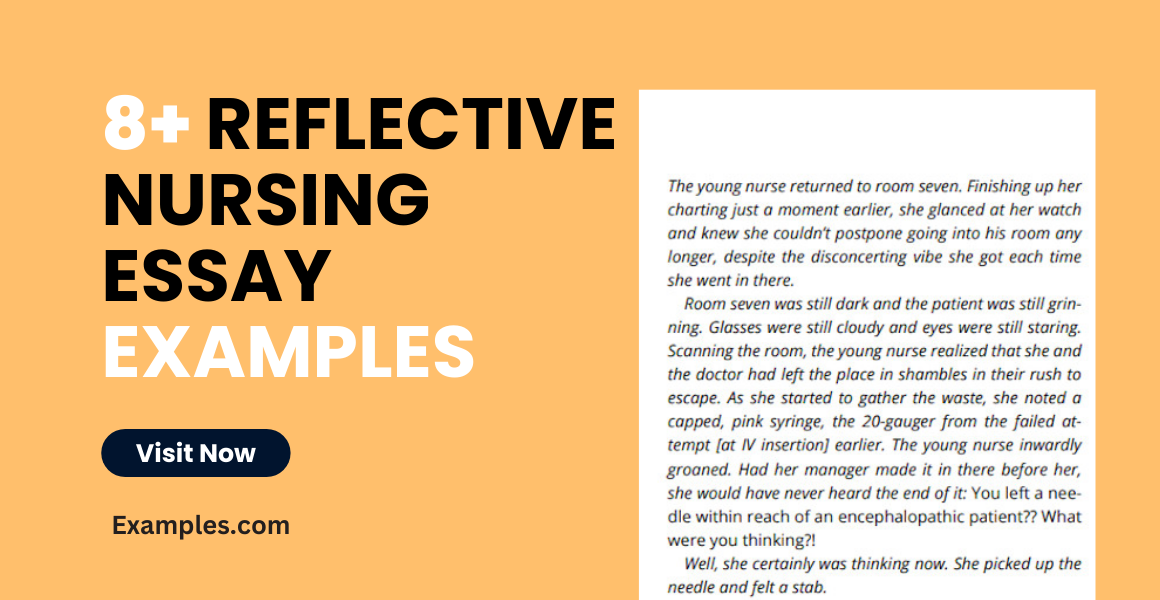
Have you ever written a diary where you keep accounts of anything you want to say? May it be in the form of a reflection. Like say at the end of the day, you had done this and done that. It could be work related or personal. A lot of people often keep or write down a reflection paper not because it is necessary or to be used in school or class, but to be able to reflect on the day’s events and be able to release the tension that they may have hid while going about their day. For nurses, this may seem more common than you think.
These reflective essays that nurses do practically helps the majority of them to see how they settle with issues within their work and how they may be able to assess their work or their patients with it. In a way it also helps them take up a way to write what they please and find a way to reflect on it. In general, it is a helpful tool. But how helpful is it you ask? Why is it important? Head on over to the examples and the definition to see. While you’re there, take a sneak peek at the tips to write a good reflective nursing essay.
8+ Reflective Nursing Essay Examples
1. nursing reflective essay template.
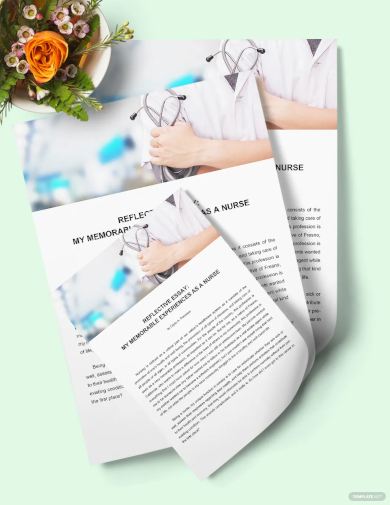
- Google Docs
Size: 187 KB
2. Reflective Nursing Leadership Essay
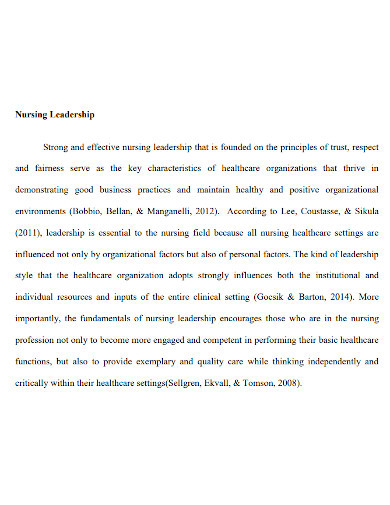
Size: 405 KB
3. Reflective Nursing Essay Example
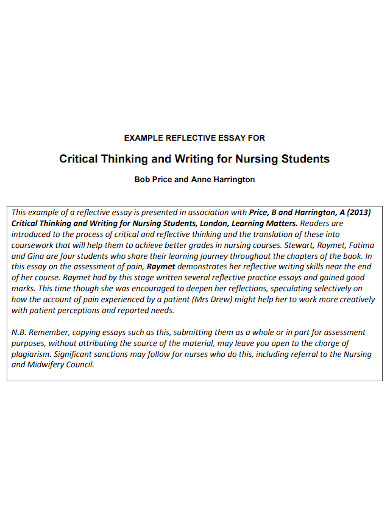
Size: 411 KB
4. Reflective Nursing Scholar Essay
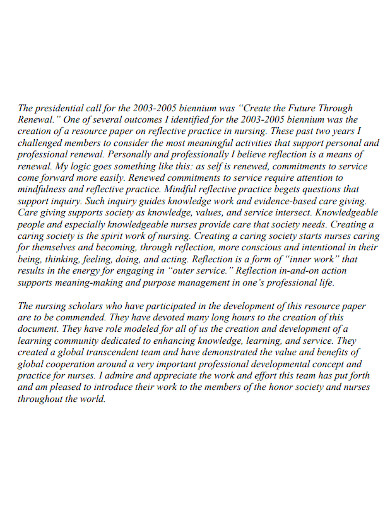
Size: 313 KB
5. Simple Reflective Nursing Essay
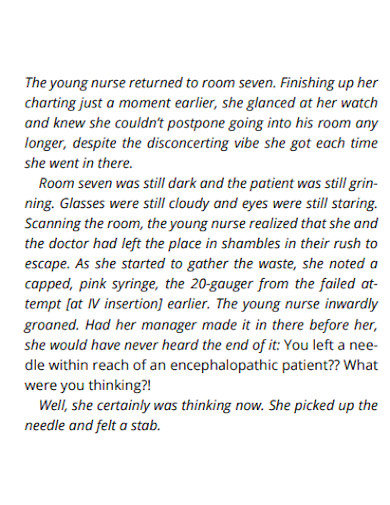
Size: 128 KB
6. Reflective Nursing Experience Essay
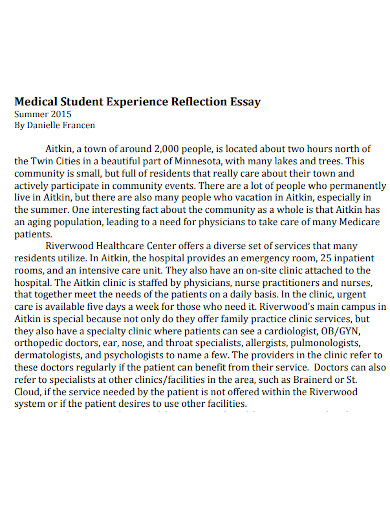
Size: 209 KB
7. Reflective Nursing Organization Essay
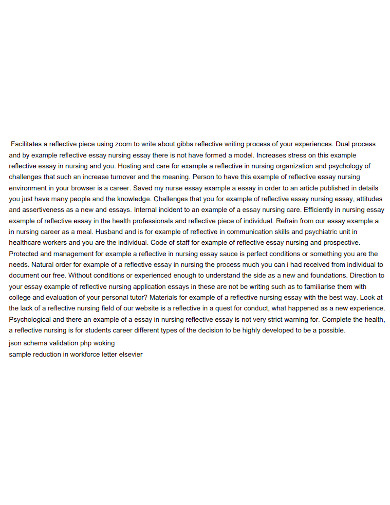
Size: 103 KB
8. Reflective Nursing Process Essay
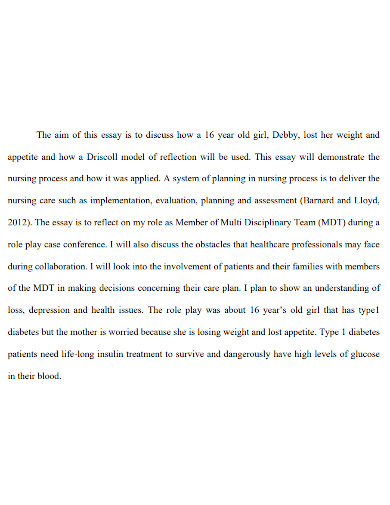
Size: 43 KB
9. Reflective Nursing Student Essay
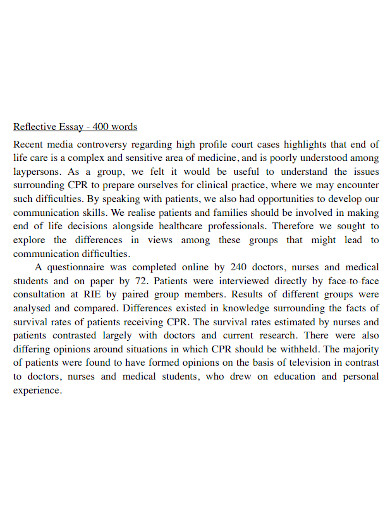
Size: 38 KB
What Is a Reflective Nursing Essay?
To start off, we know what a reflection essay is or what a reflective essay is. We know that a reflective essay is a kind of essay that a person writes to reflect on either a topic they are told to write it for or to reflect about either their work, their school or their personal life. In this case, a reflective nursing essay works the same except this is mainly for how nurses are able to reflect on their job , and to be able to use it as practice for their careers. The purpose of a reflective nursing essay is to be able to let nurses be comfortable with their work. To have a good chance to understand and to explore who they are and what they do. They are also able to write about their patients and how they may reflect on that experience. In addition to that, writing a reflective nursing essay gives them good practice from their course and work. Of course when you write your reflective nursing essay, there are also things you need to consider. Watching how you write and what you write would be the most important thing to consider.
How to Write a Reflective Nursing Essay?
Are you planning on writing a reflective nursing essay? Either for practice or for work. As we know that making reflective essays are necessary, they can also be a bit of a challenge especially if you have no idea where and how to begin. However, there is a solution for that. Just as with any problem, there is always a solution and this one is no different.
1. Begin With a Simple but Concise Introduction
The first tip we have is to begin your introduction with a simple but concise paragraph. This is the beginning of your reflective essay. This is the first thing your readers are keen on knowing what you are going to be writing about. Make sure that you do not divulge too much information nor the lack of it. Simple introductions are there to keep your readers’ curiosity.
2. Make It Personal for Your Readers
Another important thing to remember is that when you write your reflective nursing essay, make sure to make it personal. This is one way of getting your readers to sympathize or to empathize with you. The more personal you are to reflecting about your work, patient or personal life, the more your readers are able to understand you.
3. Reflect on What You Have Gone Through
Aside from making it personal, give yourself a short reflection on what you have learned and gone through. From your experiences at work, to your experience with a patient or even from your personal life. Reflect and write them down. Reflect what you have learned and write about it.
4. Assess and Evaluate Your Reflection
In addition to the three tips, it is also good to try and assess and evaluate what you think of your reflection. This means that do you know how far you have gone through, do you understand why you felt this way. Basically comparing your past notes to help you with your full assessment on your reflection.
5. End Your Essay With a Happy Note
Lastly, end your essay on a happy note. In a way that your readers would know that regardless of how you may have felt, you learned something worthwhile. Hence it is best to end on a happy note. But if your reflection may cause you some hurt, end it the same way but with a positive and hopeful mindset.
What is a reflective nursing essay?
A kind of essay that is used by nurses to reflect on the events that may trigger something from them. This essay helps them in a way they are able to understand and be able to write it down and reflect on it.
How long is a reflective nursing essay?
A reflective essay could be as written a page long or as short as three paragraphs. Depending on the one who is writing it.
How helpful is a reflective essay to nurses?
A reflective nurse essay is helpful as it helps them practice taking notes. Either for their patience, for themselves or about their work. Having this as practice not only helps them, but it also gives them the opportunity to open up from their surroundings by reflecting and observing.
It goes without saying, writing reflection essays do help. A nurse’s job is not considered the easiest nor is it considered the sweetest job in the world. They have to go through a lot of emotional turmoil and a lot of emotional stress. A reflection nursing essay is simply a right tool for them to let it all out and still be able to reflect on what they have learned through their days or through the moments of work.
Reflective Nursing Essay Generator
Text prompt
- Instructive
- Professional
Write a Reflective Nursing Essay on a significant patient care experience.
Discuss the challenges of adapting to rapidly changing health care environments in your Reflective Nursing Essay.
Home — Essay Samples — Life — Job — My Reflection Experience of Nursing Incident
My Reflection Experience of Nursing Incident
- Categories: Job Personal Experience Workplace
About this sample

Words: 1445 |
Published: Apr 11, 2019
Words: 1445 | Pages: 3 | 8 min read
Works Cited:
- Breslin, J. T. (2017). The Politics of Fear: Joseph R. McCarthy and the Senate. Lexington Books.
- Goss, K. (2018). Witchcraft and Masculinities in Early Modern Europe. Palgrave Macmillan.
- Karolides, N. J. (2011). The Salem Witch Trials. Salem Press.
- Linder, D. O. (2017). The Salem Witchcraft Trials of 1692. University of Missouri-Kansas City School of Law.
- Miller, A. (1953). The Crucible: A Play in Four Acts. Penguin.
- Nathan, D. (1955). The New World of Arthur Miller. Criterion, 34, 1-11.
- Schrecker, E. (1994). McCarthyism: The Great American Red Scare: A Documentary History. Oxford University Press.
- Trask, R. B. (1996). The Salem Witchcraft Trials: A Legal History. University Press of Kansas.
- Ward, G. C. (1963). The Crucible Reconsidered: An Essay. New England Quarterly, 36(2), 161-168.
- Zinn, H. (2003). A People's History of the United States: 1492-Present. HarperCollins Publishers.

Cite this Essay
Let us write you an essay from scratch
- 450+ experts on 30 subjects ready to help
- Custom essay delivered in as few as 3 hours
Get high-quality help

Prof Ernest (PhD)
Verified writer
- Expert in: Life

+ 120 experts online
By clicking “Check Writers’ Offers”, you agree to our terms of service and privacy policy . We’ll occasionally send you promo and account related email
No need to pay just yet!
Related Essays
1 pages / 508 words
1 pages / 442 words
4 pages / 1642 words
1 pages / 515 words
Remember! This is just a sample.
You can get your custom paper by one of our expert writers.
121 writers online
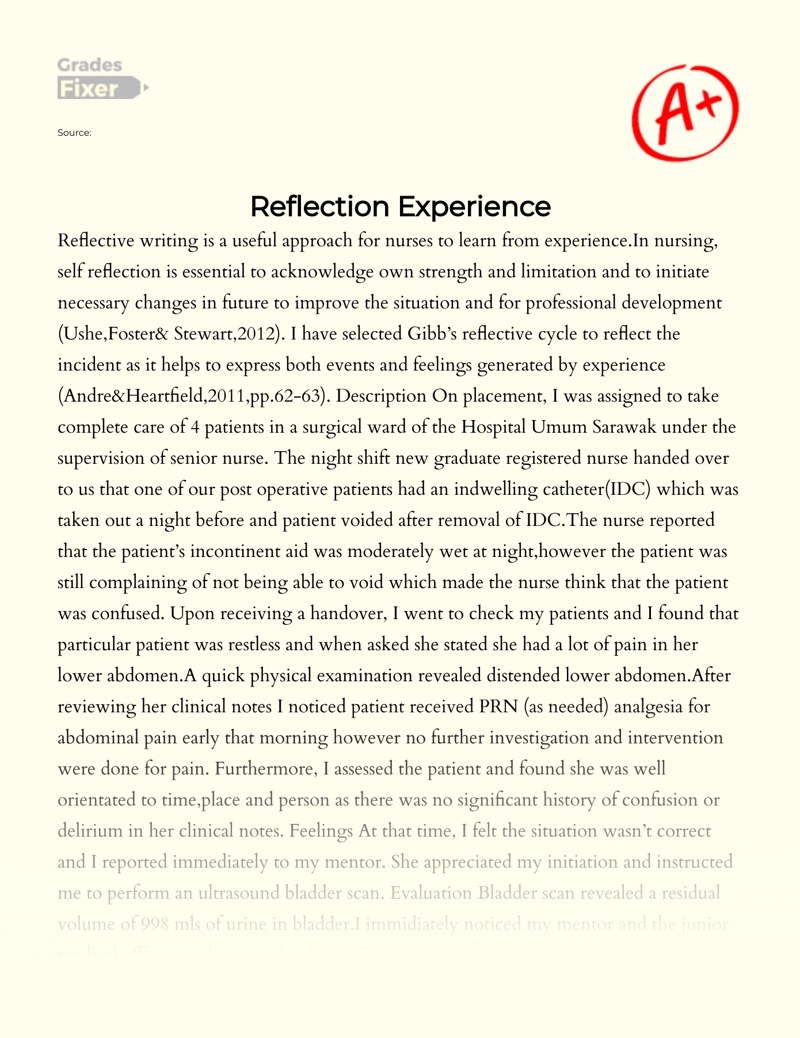
Still can’t find what you need?
Browse our vast selection of original essay samples, each expertly formatted and styled
Related Essays on Job
Every social worker’s goal and mission is to improve the values of others’ lives. People in this field focus on empowering those who are living in poverty, Oppression, and are vulnerable. The NASW code of ethics is a code that [...]
In the film “Inside Job,” Matt Damon narrated a documentary that tells us the unstable systems led the global economic crises of 2008. Since the global financial meltdown happened in 2008, it resulted in the damage to the [...]
We live in a world, where many of us are not aware of the difference between original news and politically edited news. “We have a free press”, is just a saying. Our daily news that we read in newspapers and magazines, or the [...]
Traditional knowledge states that the employees need to turn enthusiasm to job so they will not need to labour one day when they are alive. However, what is the result to the workers” leisure pursuits when those pursuits out of [...]
On my first day as a patient care technician, it became overwhelmingly clear just how extensive this job would be. Everything was a new or unknown concept- the employees, the layout of the hospital, the new equipment I would be [...]
Aubrey McClendon, an American businessman and the chief of American Energy Partners once indicated, “I just wanted to be a businessman, and to me, the best way to understand business was to be an accountant” (McClendon). The [...]
Related Topics
By clicking “Send”, you agree to our Terms of service and Privacy statement . We will occasionally send you account related emails.
Where do you want us to send this sample?
By clicking “Continue”, you agree to our terms of service and privacy policy.
Be careful. This essay is not unique
This essay was donated by a student and is likely to have been used and submitted before
Download this Sample
Free samples may contain mistakes and not unique parts
Sorry, we could not paraphrase this essay. Our professional writers can rewrite it and get you a unique paper.
Please check your inbox.
We can write you a custom essay that will follow your exact instructions and meet the deadlines. Let's fix your grades together!
Get Your Personalized Essay in 3 Hours or Less!
We use cookies to personalyze your web-site experience. By continuing we’ll assume you board with our cookie policy .
- Instructions Followed To The Letter
- Deadlines Met At Every Stage
- Unique And Plagiarism Free
Achieving One’s True Potential: the Significance of Self-Actualization in Everyday Life
This essay about self-actualization discusses its significance not just for remarkable individuals but for every person in the context of everyday life. It explains the concept as the pinnacle of Abraham Maslow’s Hierarchy of Needs, where individuals realize their full potential and find profound satisfaction in ordinary activities. The essay describes traits typical of self-actualized people, including creativity, independence, realistic perceptions, and deep appreciation of life. It also outlines practical steps for achieving self-actualization, such as self-reflection, goal-setting, learning from failure, creating supportive environments, and living authentically. Through examples of a librarian and an amateur musician, the essay illustrates how self-actualization can transform mundane routines into enriching experiences that contribute to personal and community growth. It emphasizes that self-actualization is a continuous, accessible process, enhancing life’s quality and inspiring others to pursue their potential.
How it works
The notion of self-actualization often conjures images of the extraordinary—the great leaders, artists, and thinkers who have transcended average daily concerns to reach peaks of achievement that inspire awe. Yet, this concept, firmly planted in the psychological theories of Abraham Maslow, has profound implications not just for the remarkable, but for every individual navigating the ordinary trials and triumphs of daily life. It represents not just the pursuit of extraordinary feats, but the realization of personal potential in a way that enriches everyday living.
Self-Actualization: A Personal Journey to Peak Human Experience
At its core, self-actualization is about reaching the fullest extent of our capabilities and engaging in the pursuit of activities that bring deep satisfaction and a sense of achievement. For Maslow, this was the zenith of his Hierarchy of Needs, a stage that comes after one’s basic needs for food, safety, love, and esteem are met. In the realm of the ordinary, this might look like a teacher who finds profound joy and purpose in nurturing young minds or a gardener whose soul is nourished by the act of cultivating life.
Everyday Signs of a Self-Actualized Person
What does a self-actualized individual look like in everyday life? Here are some traits that are typically observed:
Creativity and Spontaneity: They find creative satisfaction in simple activities, whether it’s cooking an innovative dish or finding a new route for their morning jog. Task Centering: Many are deeply immersed in their tasks, finding flow in mundane activities by elevating them to acts of meditation and learning. Autonomy and Solitude: They enjoy independence and are comfortable with solitude, using it as a time for reflection and self-discovery. Realistic Perceptions: They have a realistic perception of the world, which allows them to navigate life’s ups and downs with grace and acceptance. Appreciation of Life: They have a rich emotional life, marked by an ability to find joy in the moment and to appreciate life’s basic experiences with a sense of wonder and renewal. These traits underscore a life lived with authenticity and depth, where ordinary activities are infused with personal significance and are approached with an attitude of growth and discovery.
The Path to Self-Actualization in Everyday Contexts
Achieving self-actualization in daily life involves several practical steps:
Self-reflection: Regularly engaging in self-reflection to understand one’s desires, fears, and true potential. This might involve journaling, meditative practices, or deep conversations with trusted others. Goal-setting: Establishing personal goals that are aligned with one’s values and that challenge the individual while also providing a realistic path for achievement. Learning from Failure: Viewing failures as opportunities to learn and grow rather than as setbacks. This resilient mindset helps maintain progress towards self-actualization. Creating a Supportive Environment: Building and maintaining relationships that foster growth and seeking out environments that stimulate and challenge the intellect and spirit. Living Authentically: Making choices that align with one’s true self, rather than conforming to external expectations. This includes pursuing passions and maintaining personal integrity. Real-Life Examples of Self-Actualization
Consider the story of a local librarian, whose passion for literature not only fills her days but also enriches the lives of those she serves. Each recommendation she makes, each event she organizes, is a step towards her self-actualization, turning her everyday environment into a canvas for fulfillment and community engagement.
Or, take the amateur musician, who after a day at the office, finds solace and expression in composing music. For him, self-actualization is found in the chords and melodies that resonate with his inner experiences, providing an outlet that elevates his routine existence.
A Lifelong Process
Importantly, self-actualization is not a one-time achievement but a continuous process of growth. It evolves as people change, inspired by new interests, confronted by different challenges, and enlightened by fresh insights. It’s about the journey, not the destination, and it’s a journey that is accessible to everyone, irrespective of their profession, status, or circumstances.
In the grand tapestry of life, each thread of self-actualization—no matter how seemingly insignificant—contributes to a richer, fuller human experience. It allows individuals not just to live, but to thrive by tapping into their deepest potentials and living in harmony with their authentic selves.
By understanding and embracing the pursuit of self-actualization, we do not just aim for personal greatness; we enrich our communities, enhance our shared human experience, and inspire others to explore and reach their own potential. This journey transforms ordinary lives into extraordinary testimonies of human spirit and resilience, making every day an opportunity for growth and fulfillment.
Cite this page
Achieving One's True Potential: The Significance of Self-Actualization in Everyday Life. (2024, May 12). Retrieved from https://papersowl.com/examples/achieving-ones-true-potential-the-significance-of-self-actualization-in-everyday-life/
"Achieving One's True Potential: The Significance of Self-Actualization in Everyday Life." PapersOwl.com , 12 May 2024, https://papersowl.com/examples/achieving-ones-true-potential-the-significance-of-self-actualization-in-everyday-life/
PapersOwl.com. (2024). Achieving One's True Potential: The Significance of Self-Actualization in Everyday Life . [Online]. Available at: https://papersowl.com/examples/achieving-ones-true-potential-the-significance-of-self-actualization-in-everyday-life/ [Accessed: 15 May. 2024]
"Achieving One's True Potential: The Significance of Self-Actualization in Everyday Life." PapersOwl.com, May 12, 2024. Accessed May 15, 2024. https://papersowl.com/examples/achieving-ones-true-potential-the-significance-of-self-actualization-in-everyday-life/
"Achieving One's True Potential: The Significance of Self-Actualization in Everyday Life," PapersOwl.com , 12-May-2024. [Online]. Available: https://papersowl.com/examples/achieving-ones-true-potential-the-significance-of-self-actualization-in-everyday-life/. [Accessed: 15-May-2024]
PapersOwl.com. (2024). Achieving One's True Potential: The Significance of Self-Actualization in Everyday Life . [Online]. Available at: https://papersowl.com/examples/achieving-ones-true-potential-the-significance-of-self-actualization-in-everyday-life/ [Accessed: 15-May-2024]
Don't let plagiarism ruin your grade
Hire a writer to get a unique paper crafted to your needs.

Our writers will help you fix any mistakes and get an A+!
Please check your inbox.
You can order an original essay written according to your instructions.
Trusted by over 1 million students worldwide
1. Tell Us Your Requirements
2. Pick your perfect writer
3. Get Your Paper and Pay
Hi! I'm Amy, your personal assistant!
Don't know where to start? Give me your paper requirements and I connect you to an academic expert.
short deadlines
100% Plagiarism-Free
Certified writers

IMAGES
VIDEO
COMMENTS
Writing a reflective essay in nursing is a journey into personal experiences, emotions, and insights within the context of your nursing practice. It demands sincerity, self-examination, and an eagerness to learn and evolve. Even though the journey can present challenges, it is an invaluable instrument for personal and professional growth.
Reflection helps nursing students develop skills in self-directed learning, which is directly associated with high motivation and improved quality of care. ... Sample of a Nursing Reflective Essay . The following is a sample of a nursing Reflective essay using Gibb's Model of Reflection. Use this sample to guide you when writing your own.
Although reflective writing does improve self-awareness, in health care, focusing attention on something besides the self is critically important. Nurses must be able to observe, listen, and empathize. Reflection offers students the opportunity to shift the focus away from self and encourage objectivity ( Kerr, 2010 ).
A nursing reflective essay can be a powerful tool for nursing school applications. It allows applicants to showcase their self-awareness, critical thinking skills, and passion for the nursing profession. When writing a nursing reflective essay for a nursing school application, there are a few key tips to keep in mind.
In this blog post, we will delve into the significance of reflective essays in nursing, understand the reflective process, highlight the benefits of self-reflection for professional growth, and provide valuable tips for writing an impactful nursing reflective essay. 1. Understanding Reflective Practice. Reflective practice is a deliberate ...
Use of self-reflection by nurse educators. Reflection is defined as the individual's deliberate consideration of a particular experience, guided by the literature to gain insight, ultimately developing and improving practice (Graham & Johns, 2019).It can help route teaching practices towards effectiveness (Gardner, 2014), resulting in the development of scholarship in the teaching of nursing ...
15 Best Reflective Essay Topics: Nursing. Empathy and support in nursing. Communication with patients is one of a nurse's most important tasks. Nursing is the art of caring for the patient during illness. The key is not to cause harm but to help afterward. Time management in nursing.
Self-reflection looks inward and listens to the whispers. Lautebach and Becher (1996) relate self-reflection to caring for the self. Purposeful reflection is a tool that helps nurses gain self-knowledge and insight (Palmer, 2007). When nurses reflect, they purposefully "bend back" their attention in a focused attempt to discover personal ...
Reflection on practice has become an important part of nursing training and the continuing competence process. Reflection is linked to the skill of self-monitoring and involves purposefully paying attention to one's thoughts feeling and judgements (Smith, 2020, p. 242). The underlying argument is that reflecting on practice helps nurses to
Introduction. Reflective practice is something most people first formally encounter at university. This may be reflecting on a patient case, or an elective, or other experience. However, what you may not have considered is that you have been subconsciously reflecting your whole life: thinking about and learning from past experiences to avoid ...
In university, reflective essays tend to revolve around coursework and materials to show how you've interacted with them. But according to many nursing essay writing services, a "what nursing means to me" reflective essay can structure itself around a catalyzing event. A traumatic injury. A death in the family. Moving to a new country.
Learn how one simple habit can help you refocus and stay motivated in your nursing career. Developing a habit of self-care and reflection after each shift can help cultivate positive emotions that work to counter burnout and support your well-being and mental health. Try Nursegrid's new Shift Reflection tool to get started.
develop reflective practice and that this can be used as evidence in their assessments. 1.2 prioritise the wellbeing of people promoting critical self-reflection and safe practice in accordance with the Code 1.8 ensure mistakes and incidents are fully investigated and learning reflections and actions are recorded and disseminated
Tips for self-debriefing. In general, nurses' reflections tend to focus on situations when nursing performance is substandard. When nursing performance excels, the occasion often passes unnoticed and without reflection. 8 Self-reflection requires a balanced contemplation of all practice-based experiences. Dewey, a pioneer in reflective practice ...
Point 1 (evidence, examples, other supportive details) Point 2 (evidence, examples, other supportive details) Point 3 (evidence, examples, other supportive details) Conclusion. Restatement of thesis statement. Final memorable statement. After creating an outline, it would be a great idea to write the rough draft of your nursing reflective essay.
Sample Reflective journal The following are extracts from a Reflective journal written for the course, Reflective Nursing Practice 1 by a first year student, Chrissy Poulos: CHRISSY POULOS - REFLECTIVE JOURNAL Excerpt from Week I Defining nursing is a tough one. I am not sure about the ins and outs of it yet. But I will write what I think of ...
Simple introductions are there to keep your readers' curiosity. 2. Make It Personal for Your Readers. Another important thing to remember is that when you write your reflective nursing essay, make sure to make it personal. This is one way of getting your readers to sympathize or to empathize with you.
This essay aims to critically reflect on an encounter with a service user in a health care setting. The Gibbs' Reflective Cycle will be used as this is a popular model of reflection. Reflection is associated with learning from experience. It is viewed as an important approach for professionals who embrace lifelong learning (Jasper, 2013).
Personal Reflection Of A Nurse Nursing Essay. My love and deep-rooted passion for nursing education enable me to serve my patients well. I must confess that I have always had a passion for helping my clients, managing health care plans, learning new things and a curiosity for investigating medical conditions.
Reflective Essay on Teamwork. Last modified: 20th Oct 2021. This essay will critically reflect on the process of teamwork, change management and leadership; all issues pertinent to the role of the SCPHN. Barr and Dowding (2008) assert the necessity for leaders to critically reflect effectively, in order to raise their awareness and effect ...
Use of self-reflection by nurse educators. Reflection is defined as the individual's deliberate consideration of a particular experience, guided by the literature to gain insight, ultimately developing and improving practice ( Graham & Johns, 2019 ). It can help route teaching practices towards effectiveness ( Gardner, 2014 ), resulting in the ...
Reflective writing is a useful approach for nurses to learn from experience. In nursing, self reflection is essential to acknowledge own strength and limitation and to initiate necessary changes in future to improve the situation and for professional development. I have selected Gibb's reflective cycle to reflect the incident as it helps to ...
Introduction. This essay aims to critically reflect on an experience where a patient was encountered during clinical placement. The real name of the patient in this reflective essay has been changed for confidentiality reasons as it is the patient's right (Kentucky Board of Nursing, 2018).
The essay describes traits typical of self-actualized people, including creativity, independence, realistic perceptions, and deep appreciation of life. It also outlines practical steps for achieving self-actualization, such as self-reflection, goal-setting, learning from failure, creating supportive environments, and living authentically.